NC Permit, NC DMV Permit Test
1/705
There's no tags or description
Looks like no tags are added yet.
Name | Mastery | Learn | Test | Matching | Spaced |
|---|
No study sessions yet.
706 Terms
Stop
The eight-sided (or octagon) sign is the stop sign. The words "STOP" is printed in white on a red background. The octagonal shape is used for stop signs only. The stop sign is usually posted six to fifty feet from the intersection. When you approach this sign, the law requires you to come to a full stop. Do not proceed to move again until you are sure the way is clear.
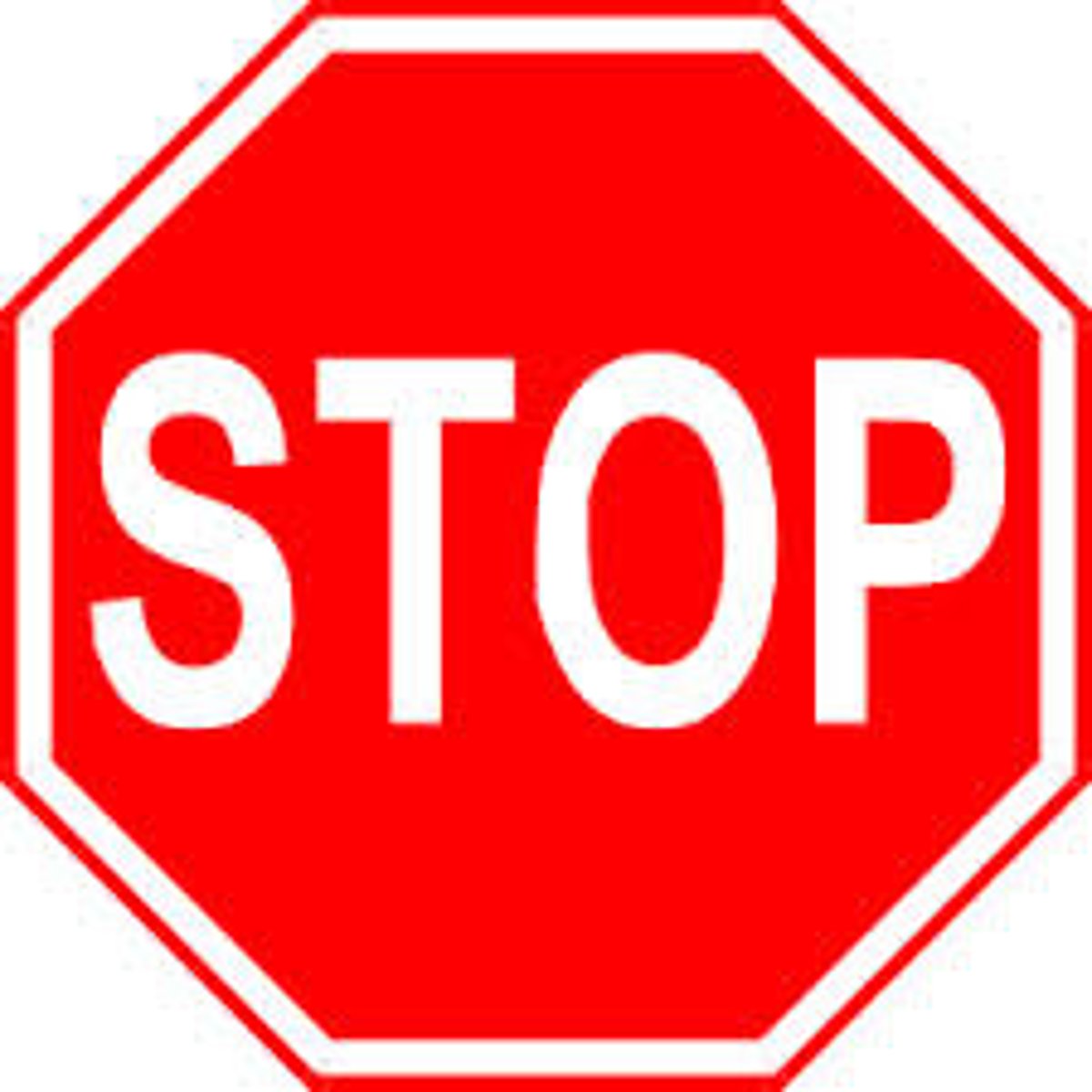
Yield
The yield sign is triangular shaped with the point at the bottom. This sign is red and white with the word "YIELD" in large letters at the top. When you approach the yield sign, you must slow down and yield the right of way. Your need to stop depends on the traffic on the intersecting street. To avoid interfering with that traffic, you must stop and wait for it to pass.
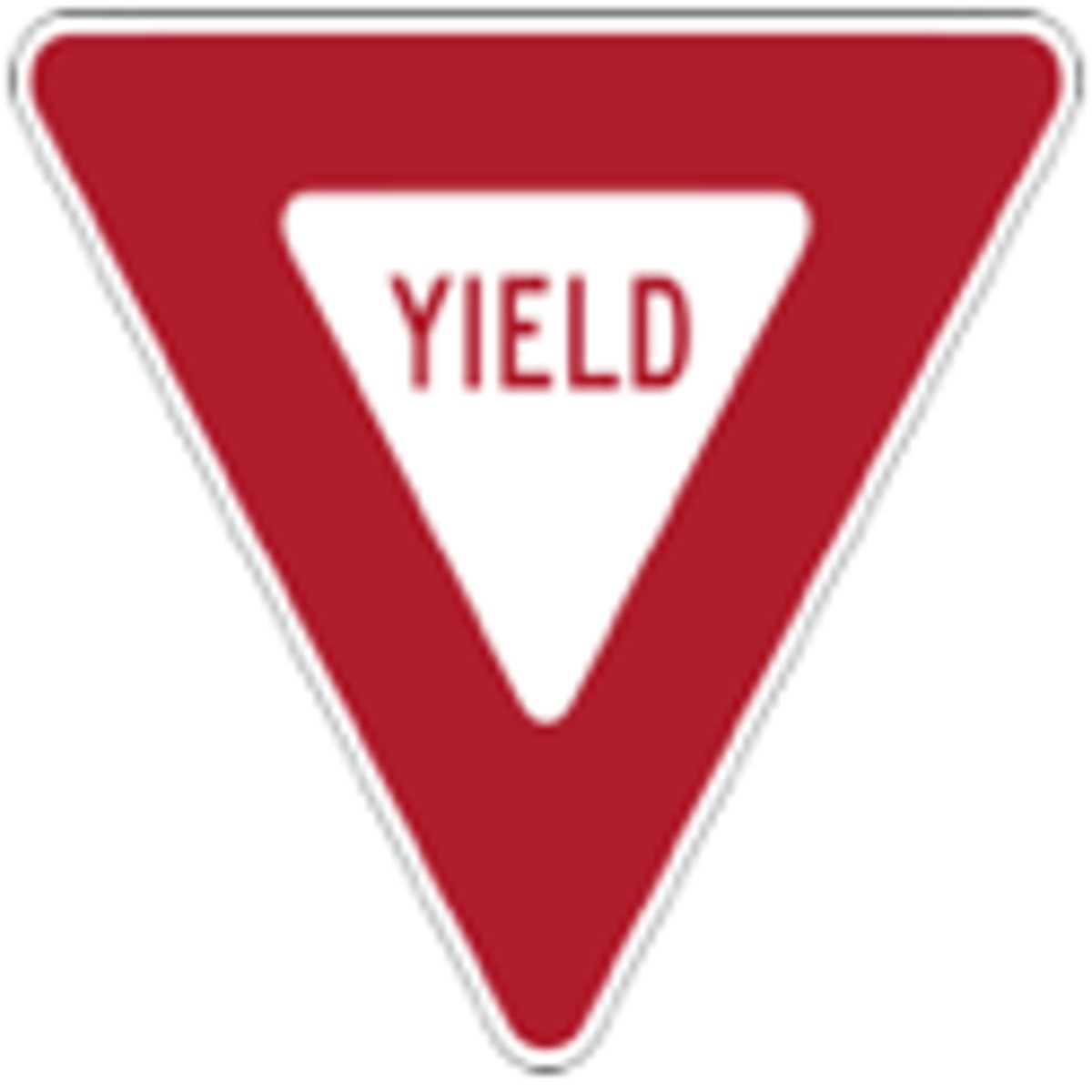
Speed Limit
Some signs show maximum and minimum speed limits for all types of vehicles on freeways and limited access highways. In construction and maintenance zones, posted speeds legally reduce the speed limit on that portion of the highway. Unless necessary for safety, driving slower than the minimum is illegal.
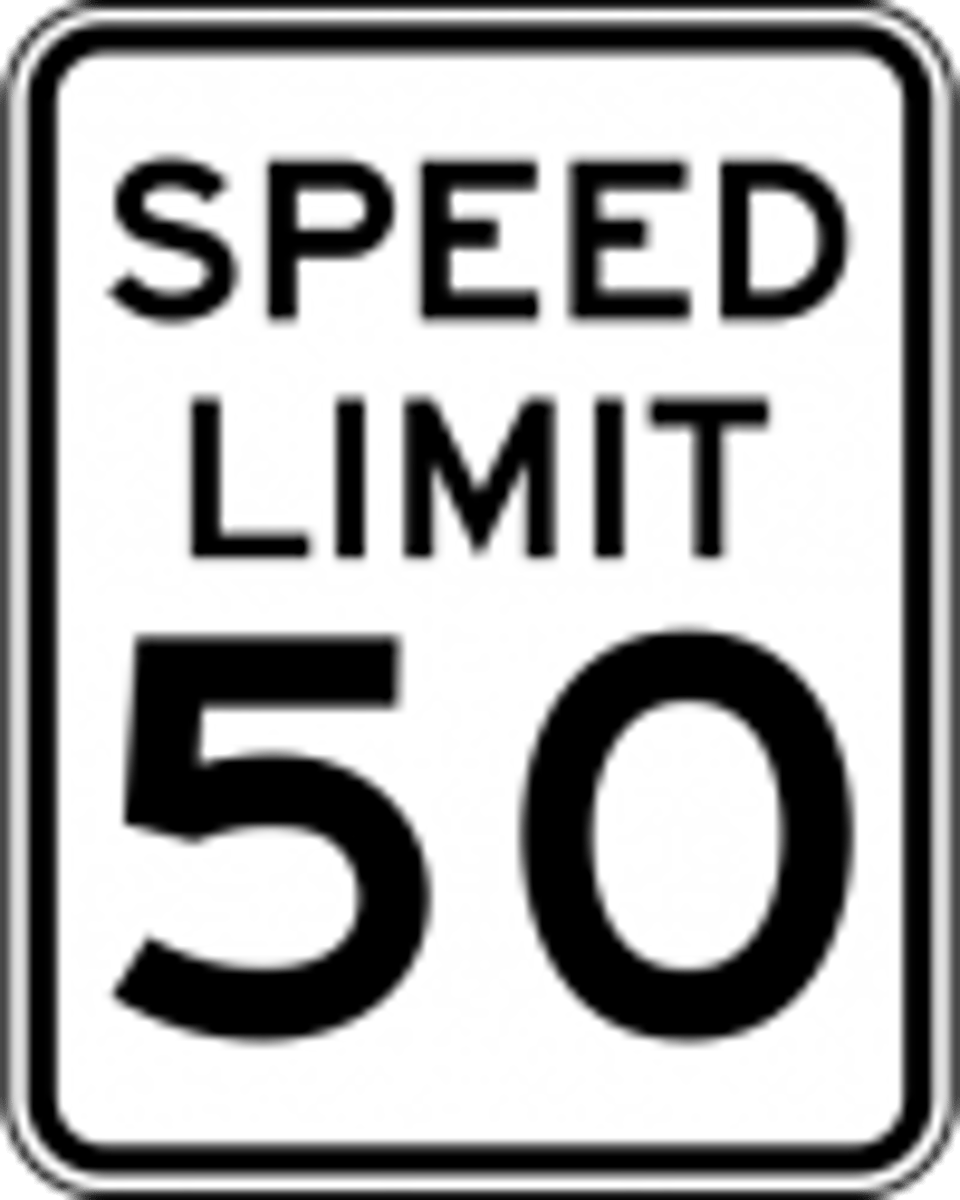
Do Not Enter
This sign is posted on one-way streets and other roadways you are not allowed to enter. You also will see this sign if you try to enter an expressway ramp in the wrong direction.
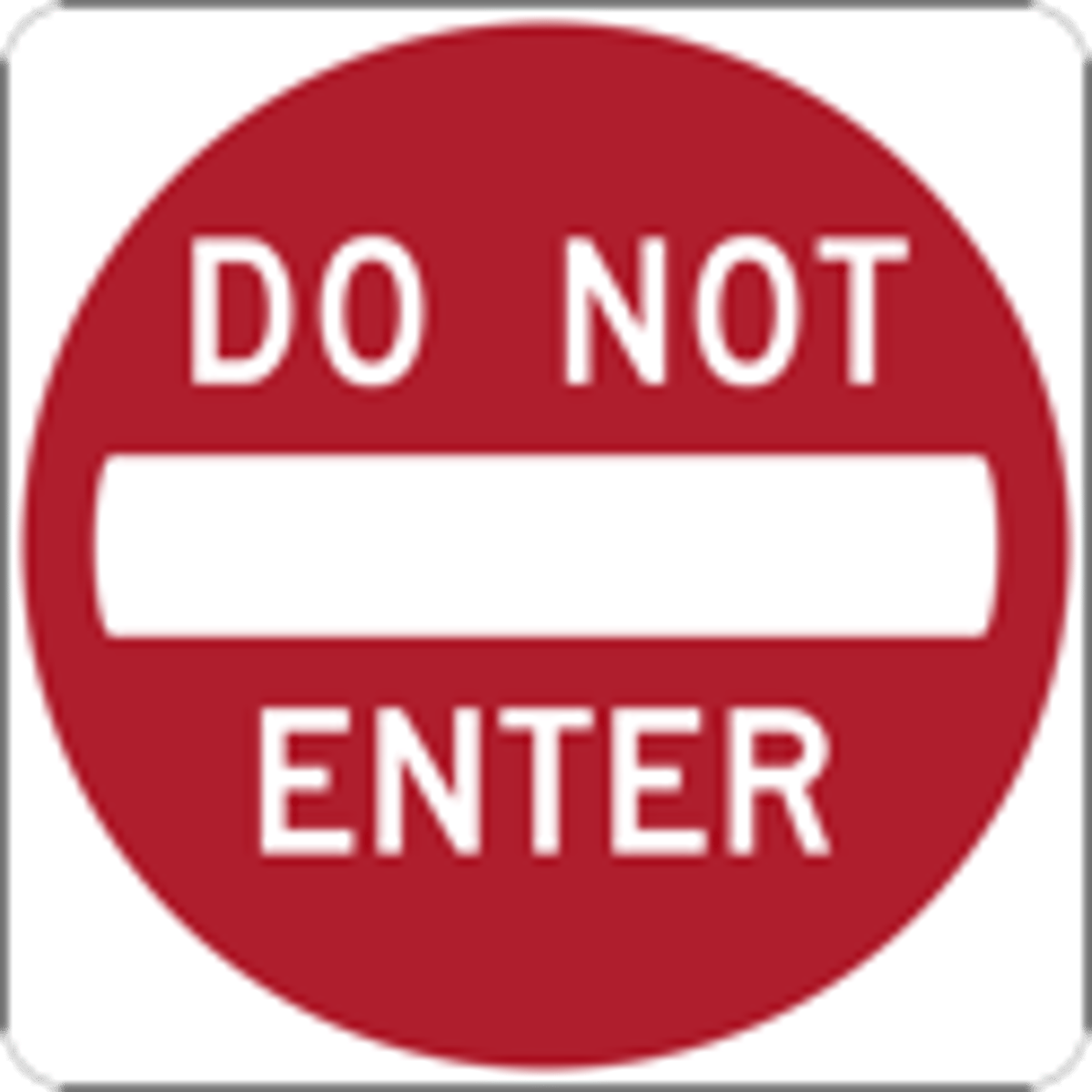
No Bicycles
Operators of such may not use roadway where this sign is posted.
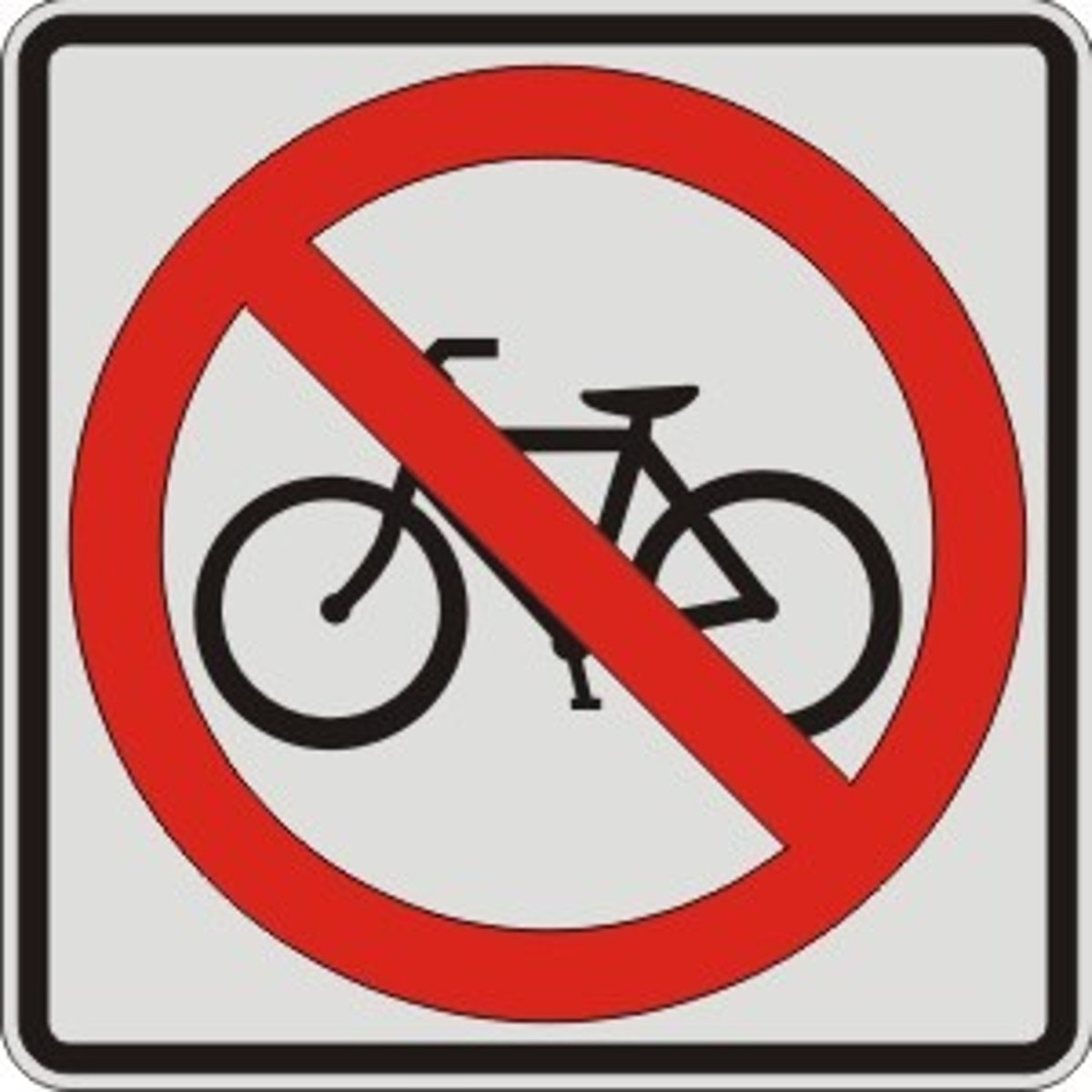
Left Turn Only
This sign is posted over a highway lane that is used only for making a left turn. Traffic from both directions will be using this lane. Never use a turning lane as a merge lane to pull out into traffic or to overtake and pass other vehicles.
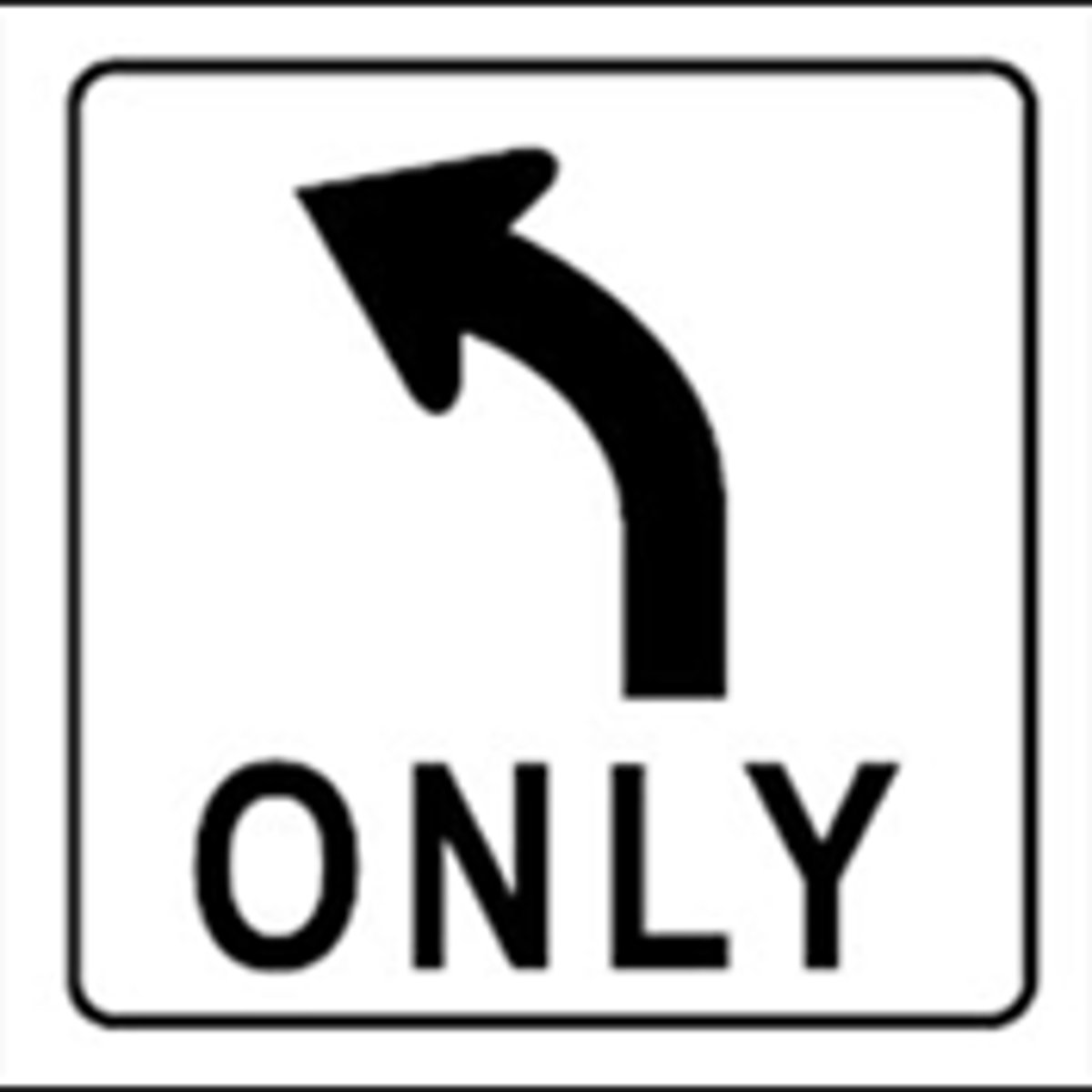
Thru traffic & Left Turn
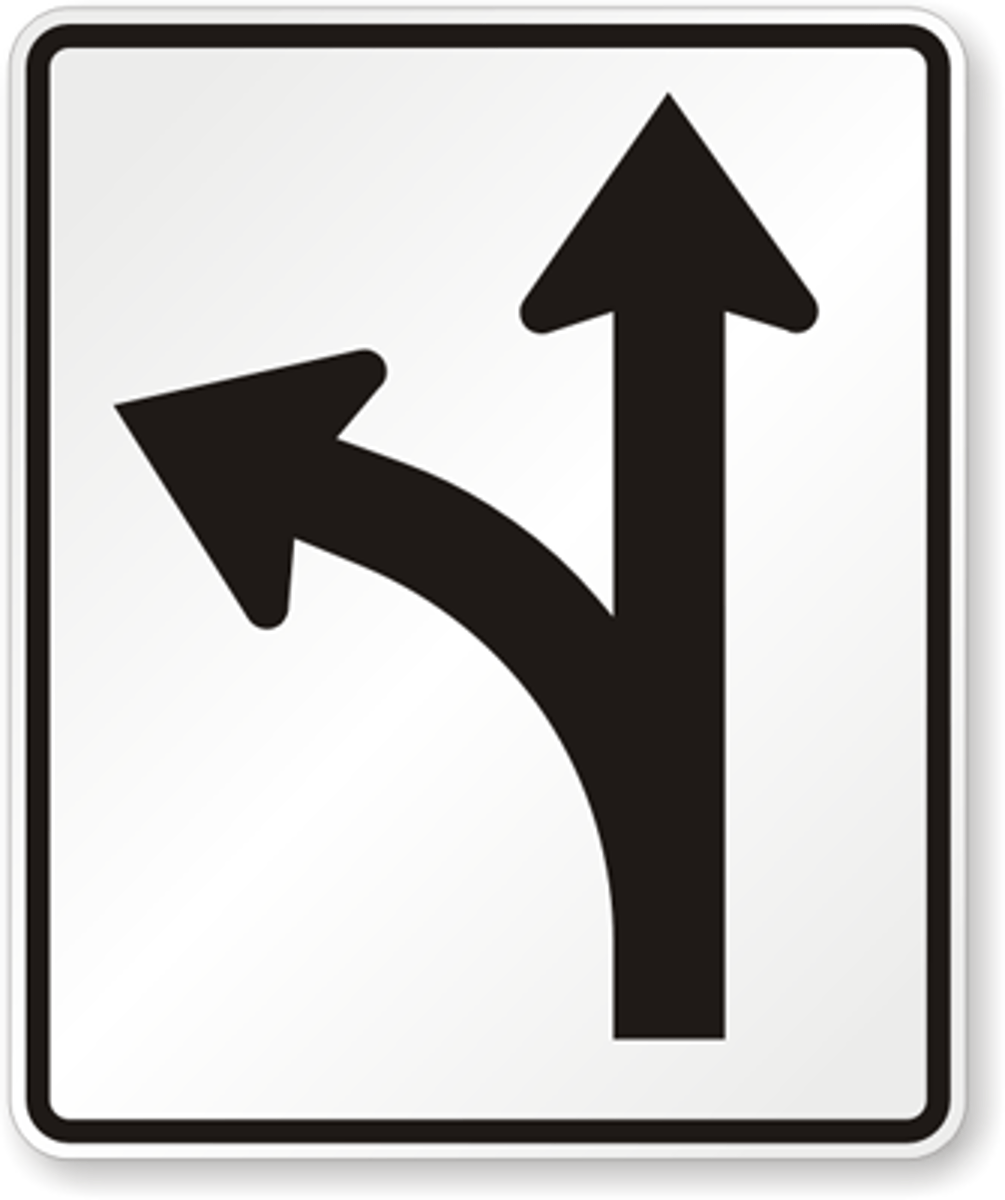
Left Lane Must Turn Left
Traffic in left lane must turn left at the intersection ahead.
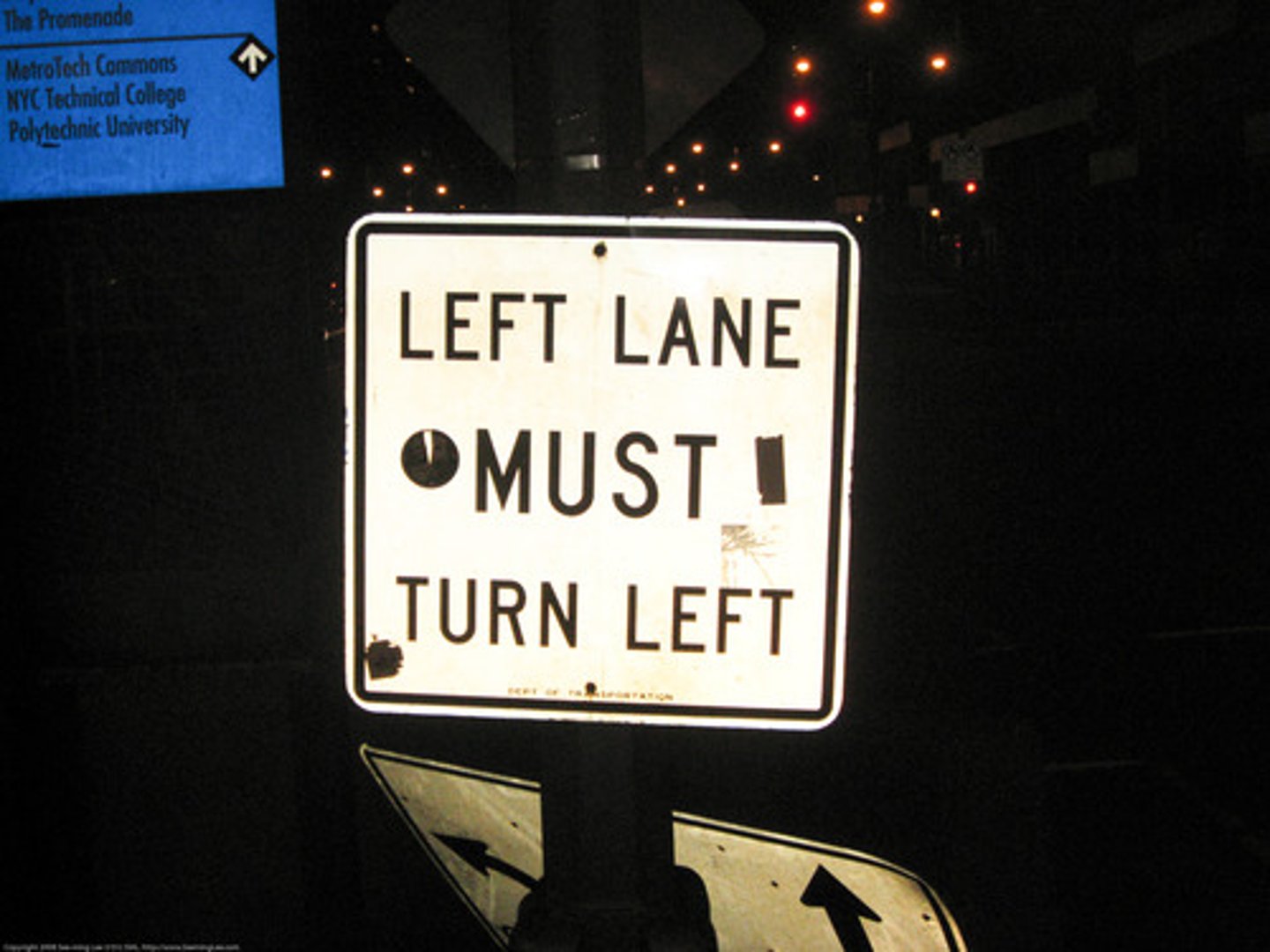
No Left Turn
Left turns are against the law. In Virginia, U-turns are considered as two left turns and are illegal if this sign is posted.
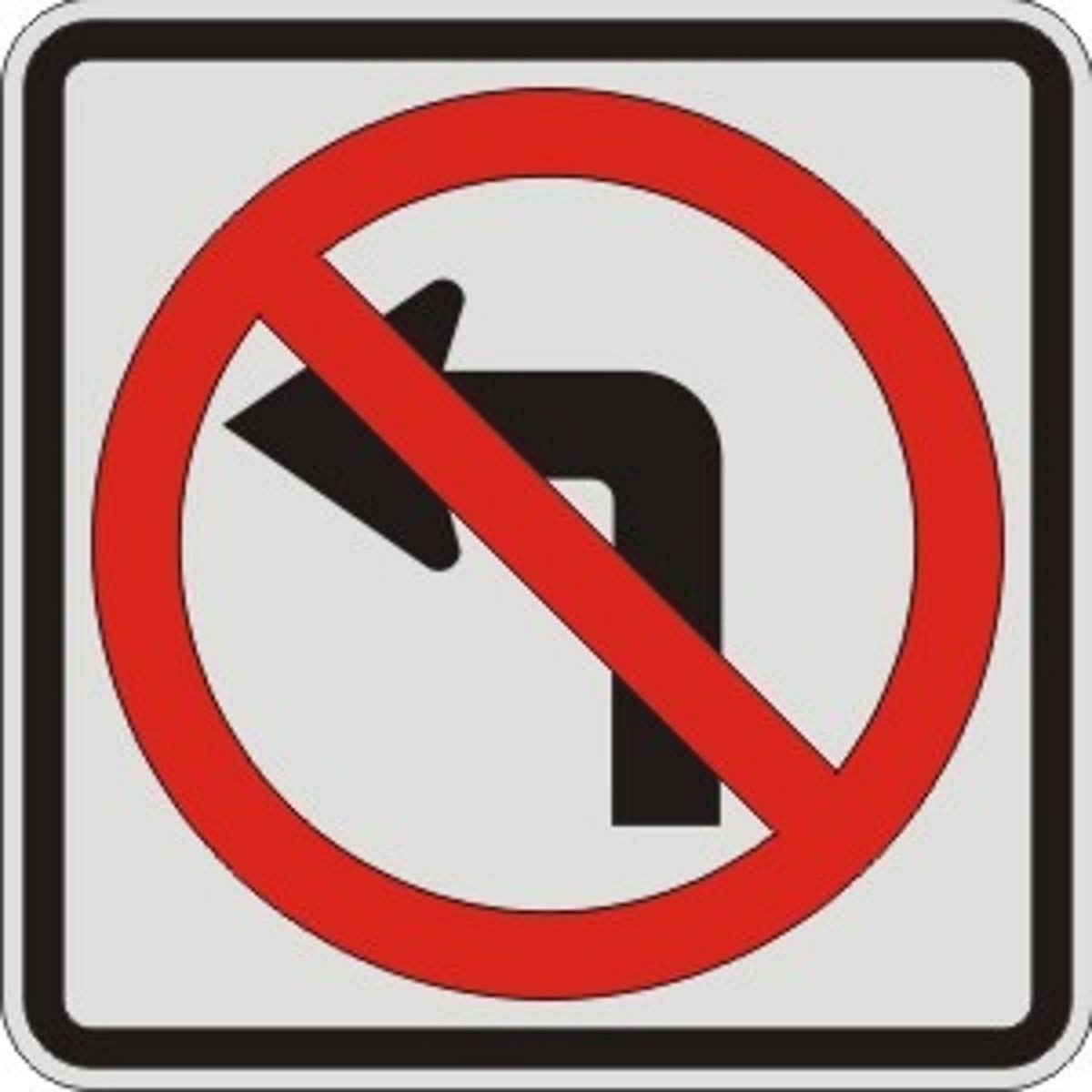
No Right Turn
Right turns are illegal. Do not make a right turn if you see this sign.
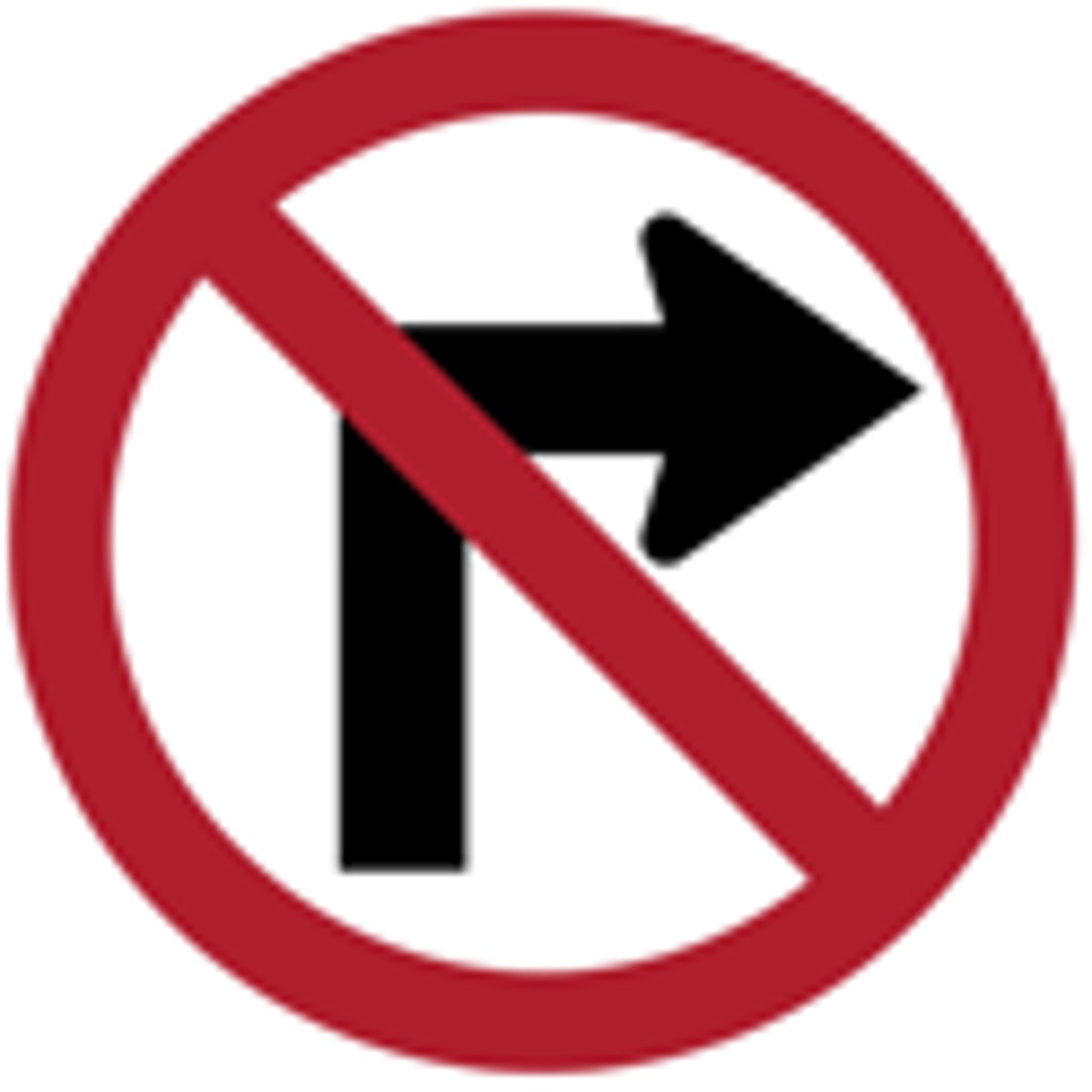
No Turns
You must not turn either to the right or to the left at this intersection.
No U Turns
U Turns are prohibited at intersections with this sign.
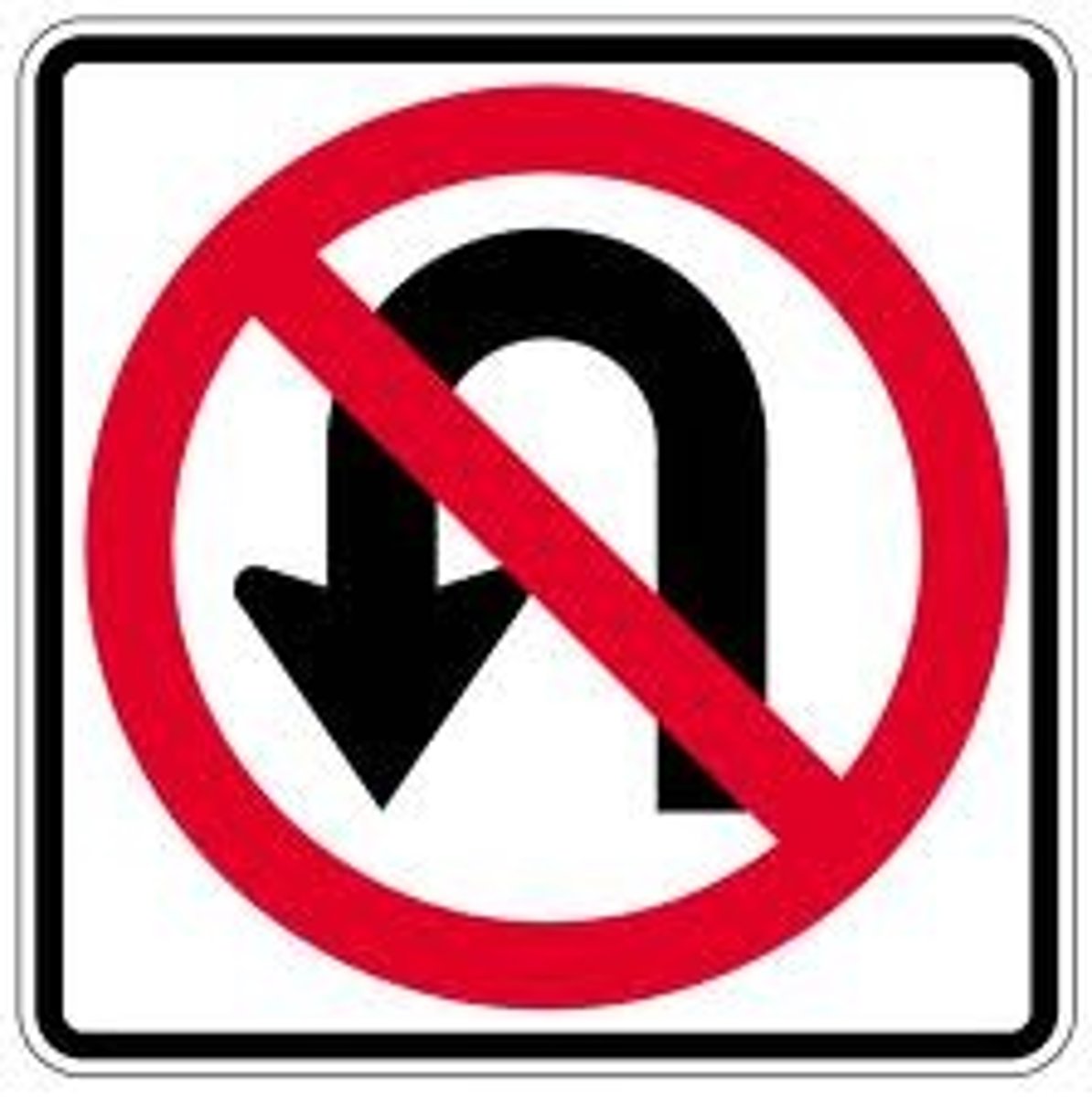
Double Left Turns

Keep Off Median

Do Not Pass
This sign marks the beginning of a no passing zone. You may not pass cars ahead even if way is clear.
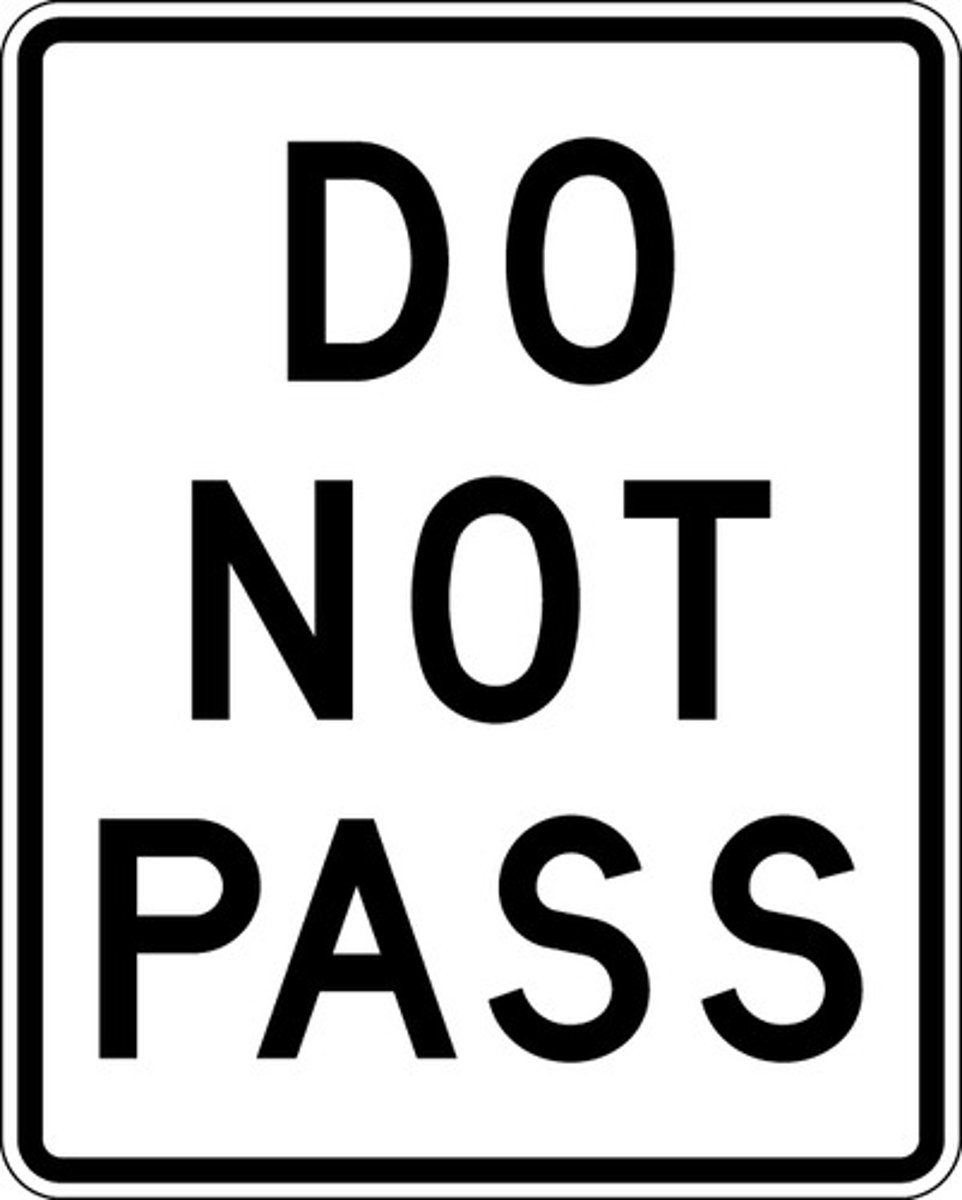
Pass With Care
When you have passed this sign, you are again permitted to pass other vehicles with care.
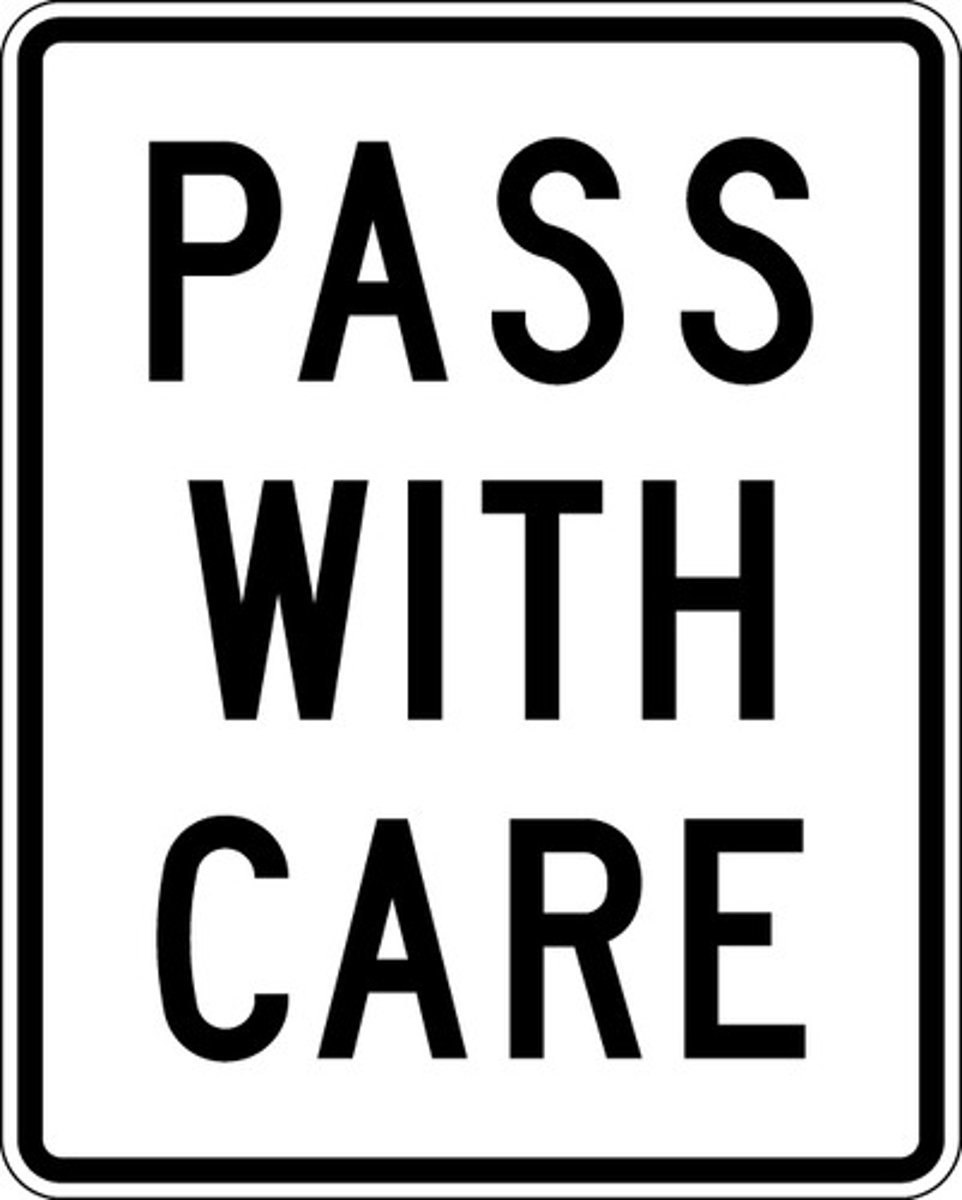
Slower Traffic Keep Right
This sign is used on multiple lane highways to advise slower driving traffic to stay in the right hand lane; and also to do so when approached from behind by other traffic even if you are doing the speed limit.
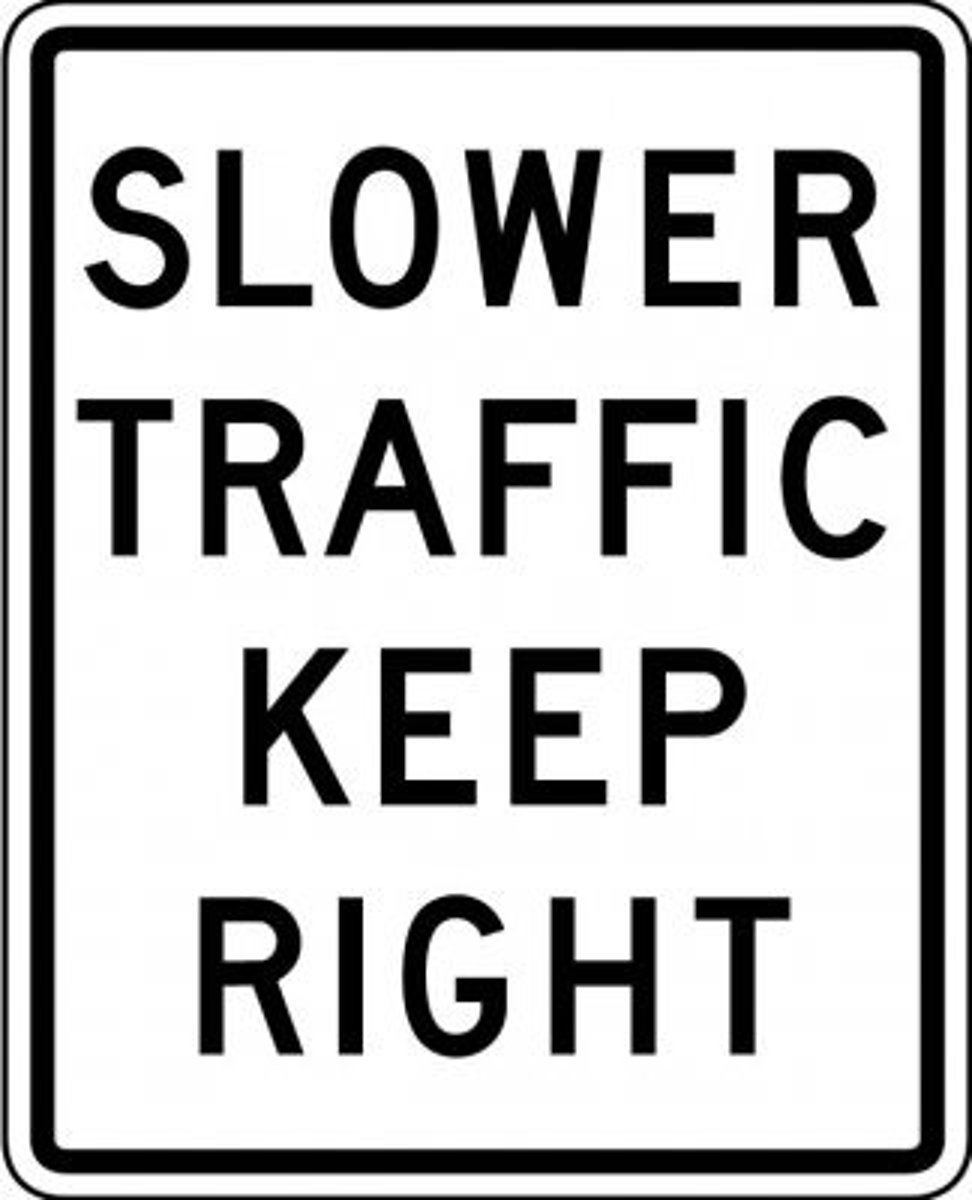
Emergency Parking Only
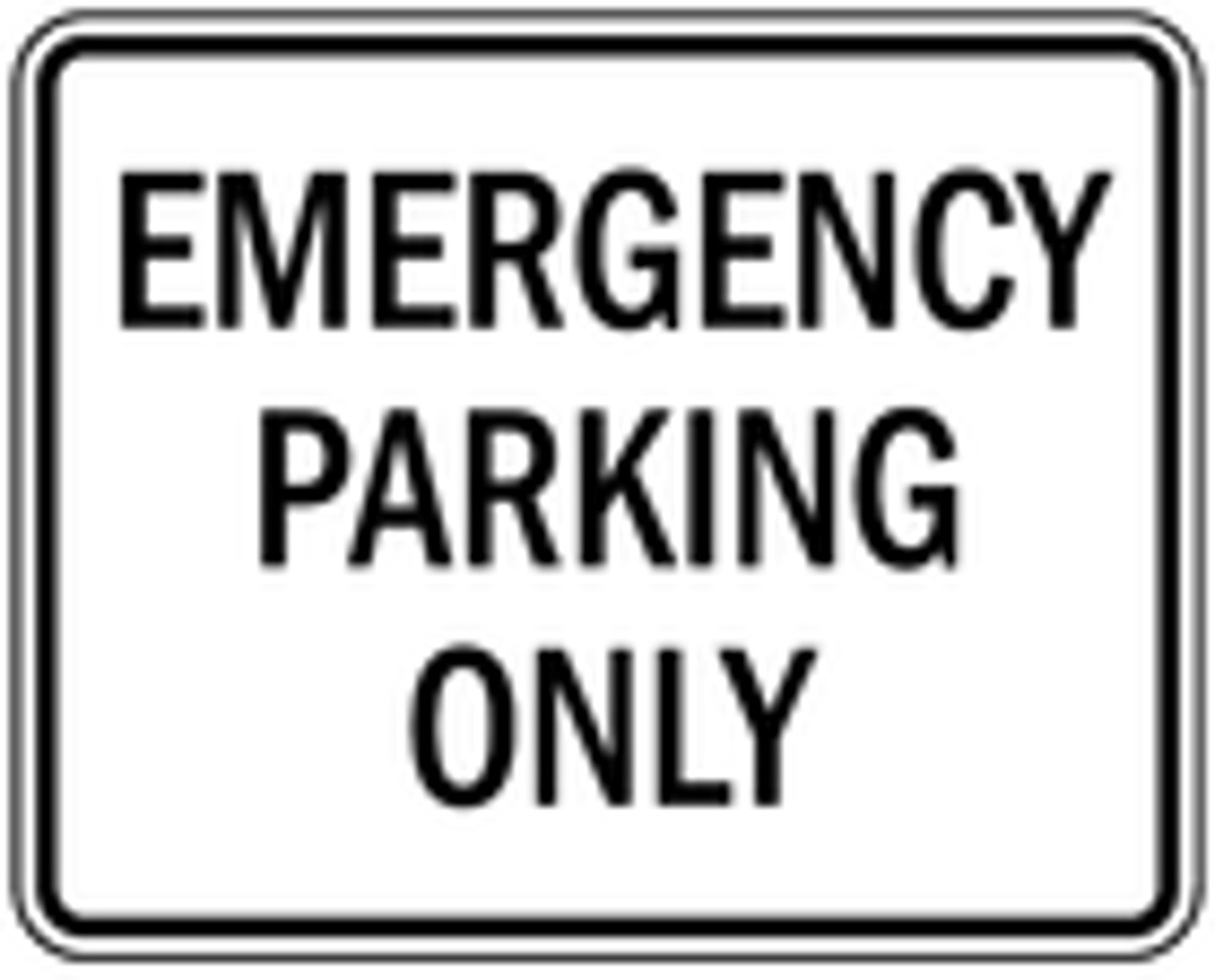
One Hour Parking 9am-7pm
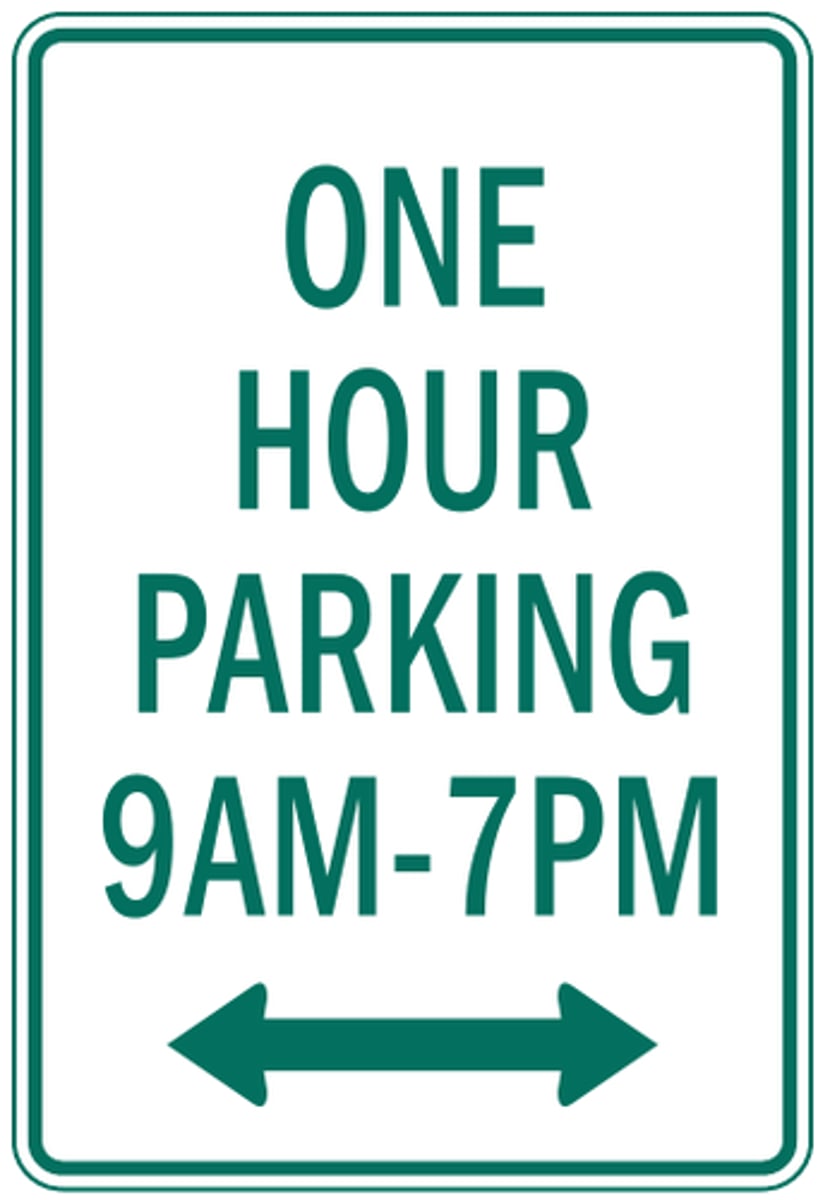
Reserved Parking
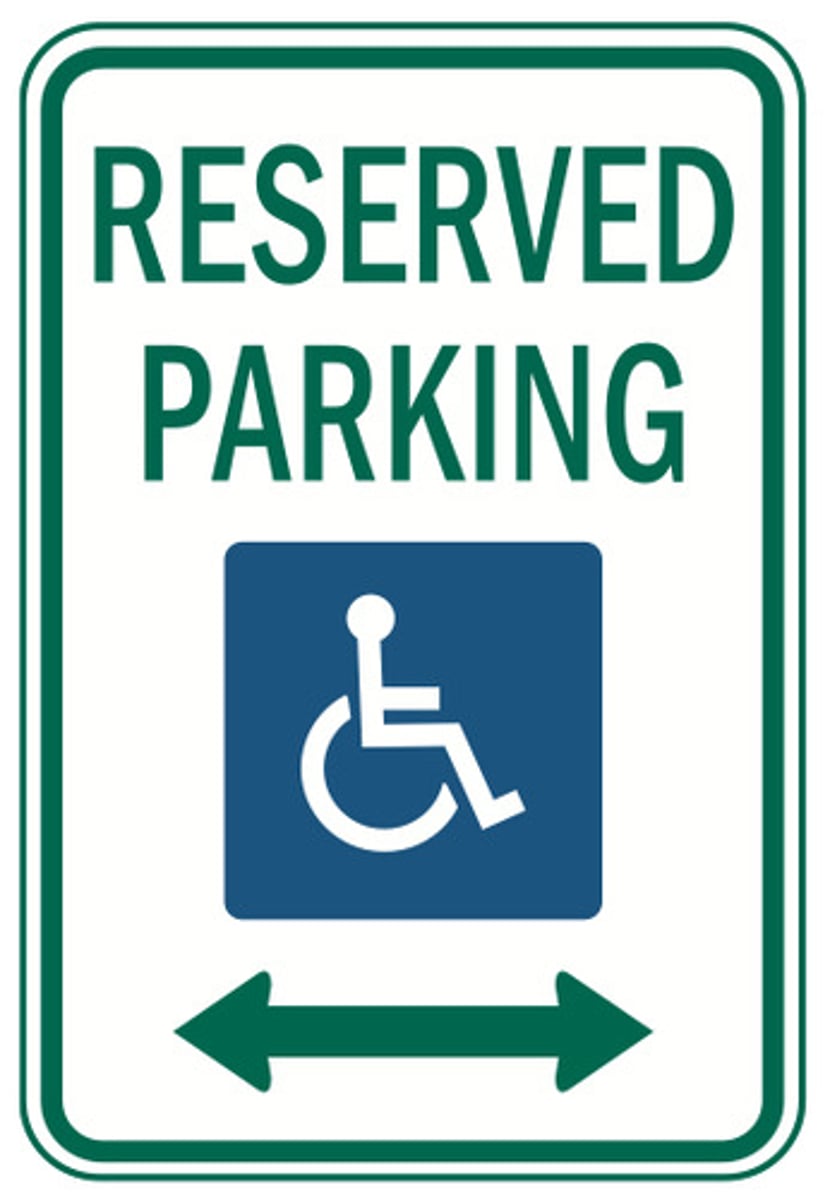
No Parking/ Bus Stop
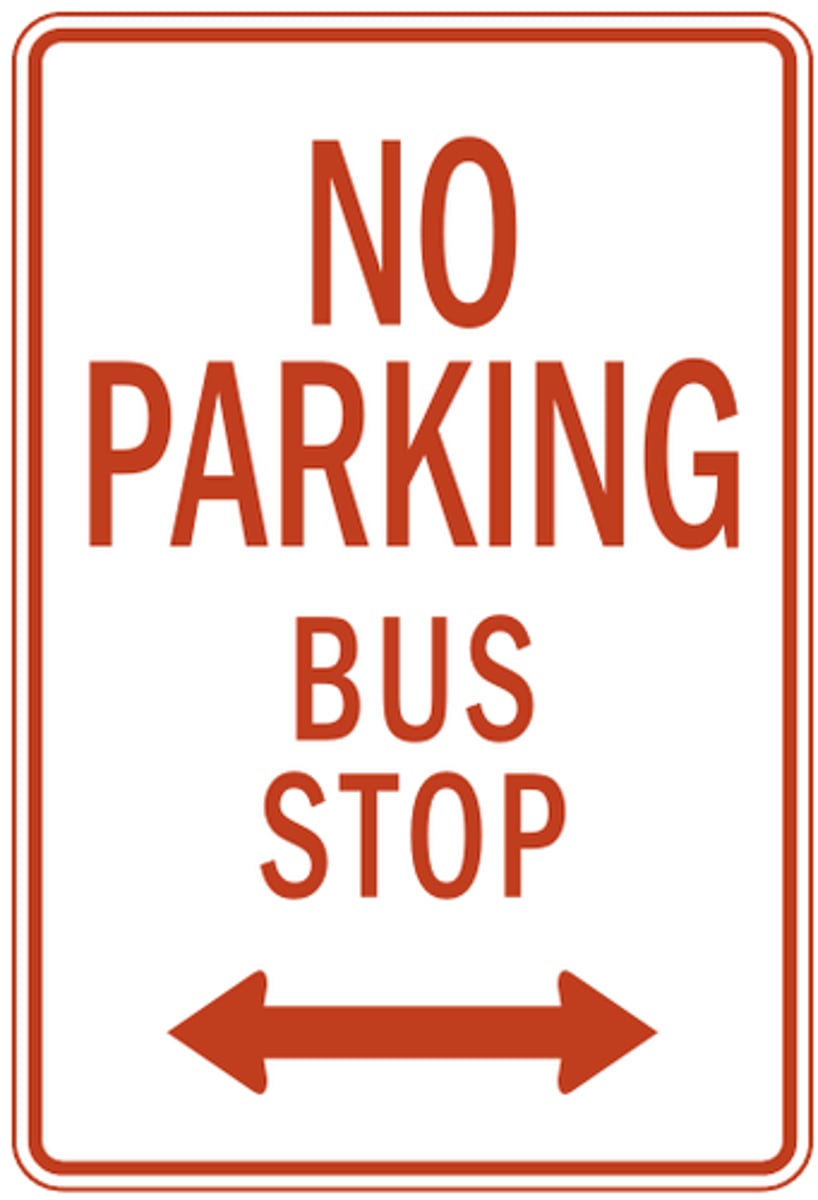
One Way Street
Traffic flows only in one direction here.

Railroad Crossing
Advance warning signs are placed before a railroad crossing. These signs warn you to look, listen, slow down and be prepared to stop for trains.
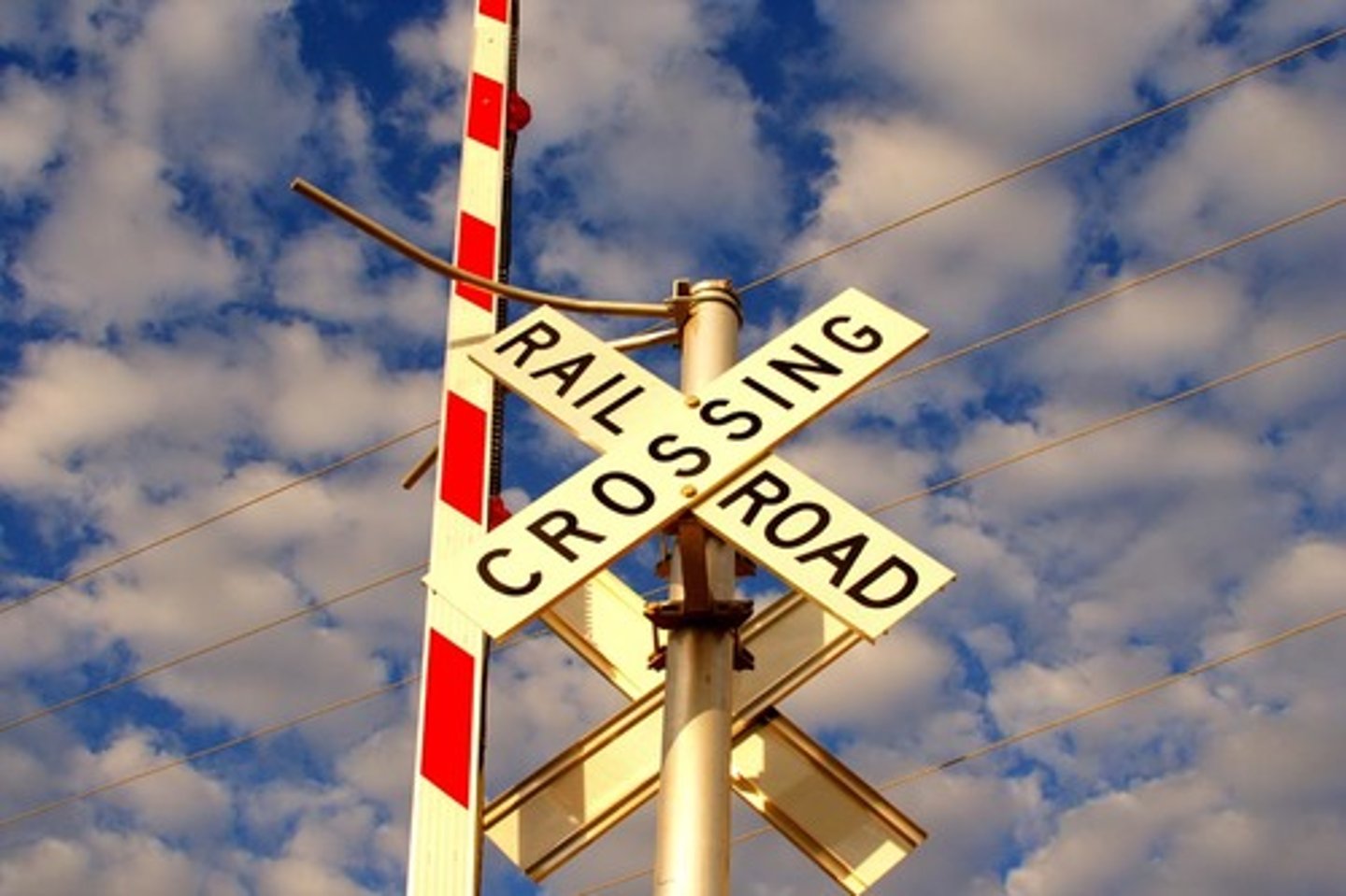
Do Not Stop On Tracks
This sign reminds the driver not to stop on the railroad track for any reason.
Keep Left
A traffic island, median or barrier is ahead. Keep to the side indicated by the arrow.
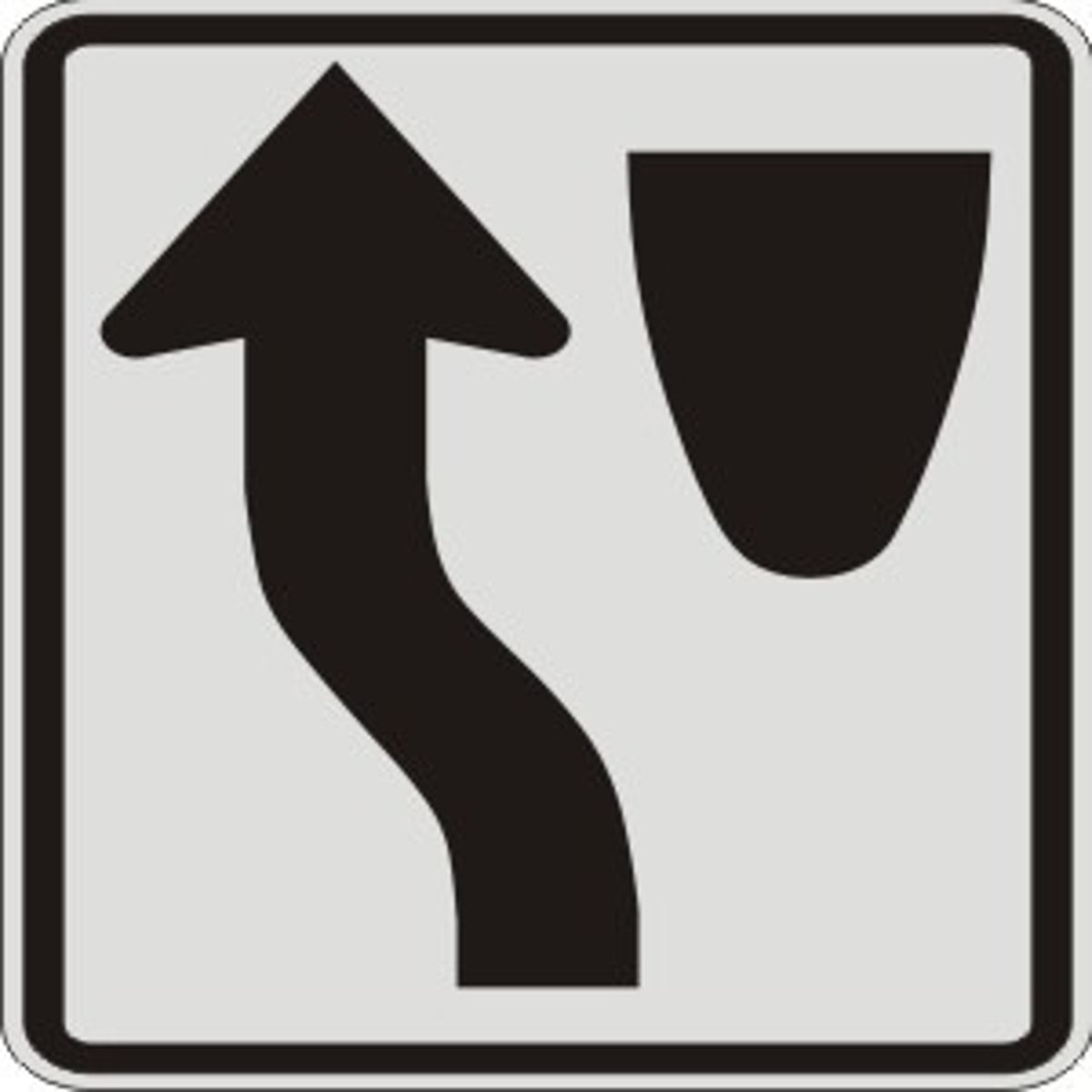
Keep Right
A traffic island, median or barrier is ahead. Keep to the side indicated by the arrow.
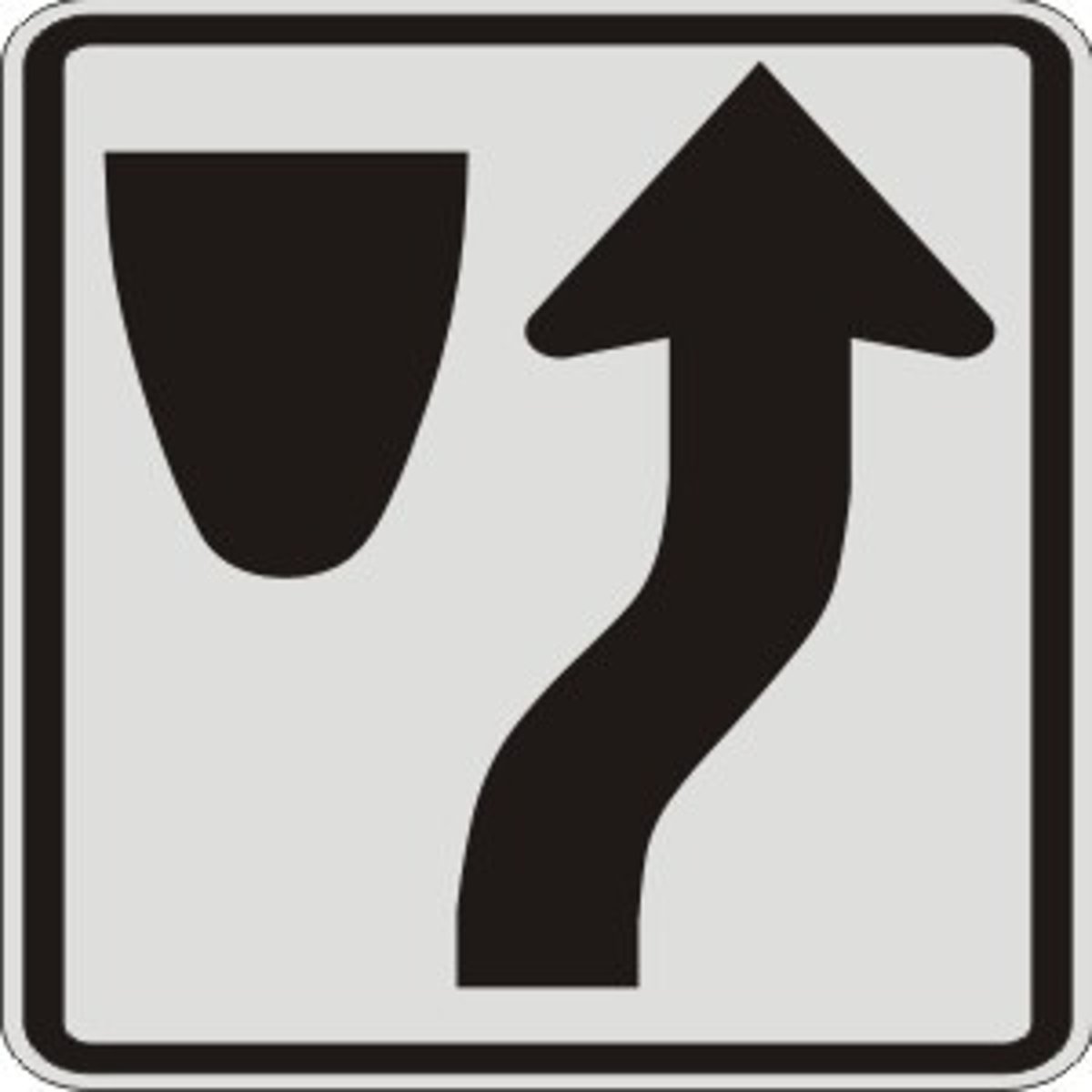
One Way
Traffic flows only in the direction of the arrow.
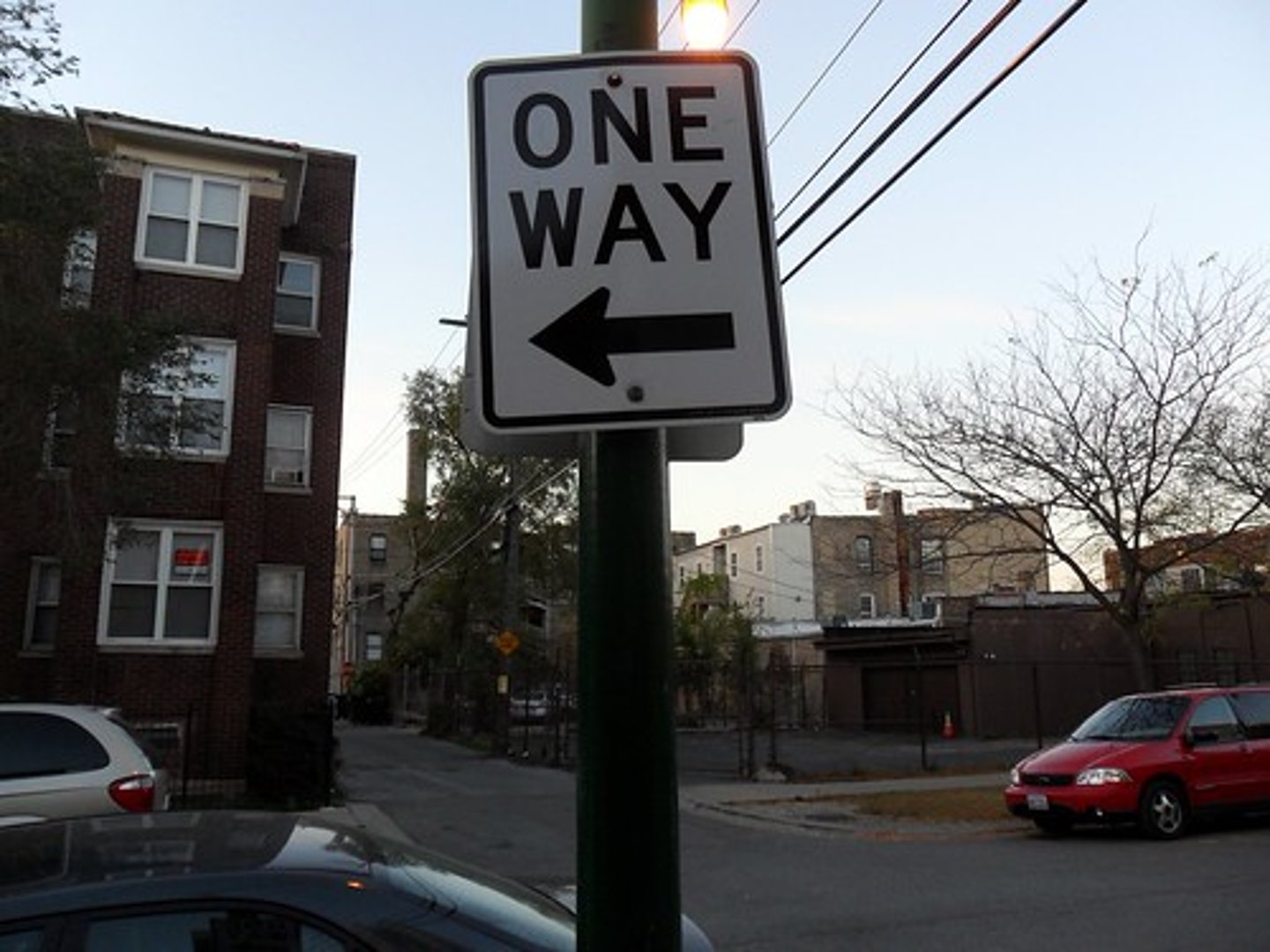
Signal Ahead
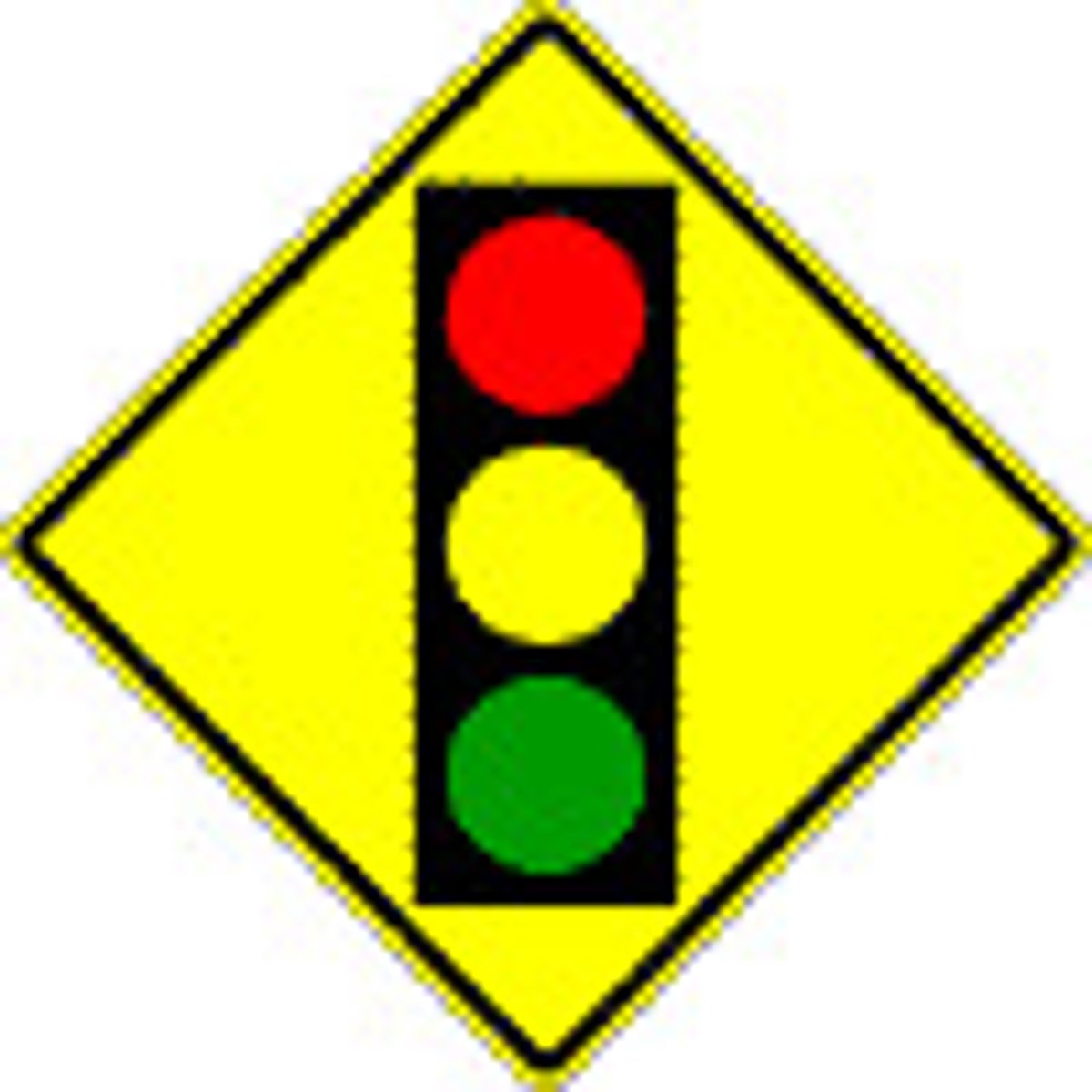
Merging Traffic
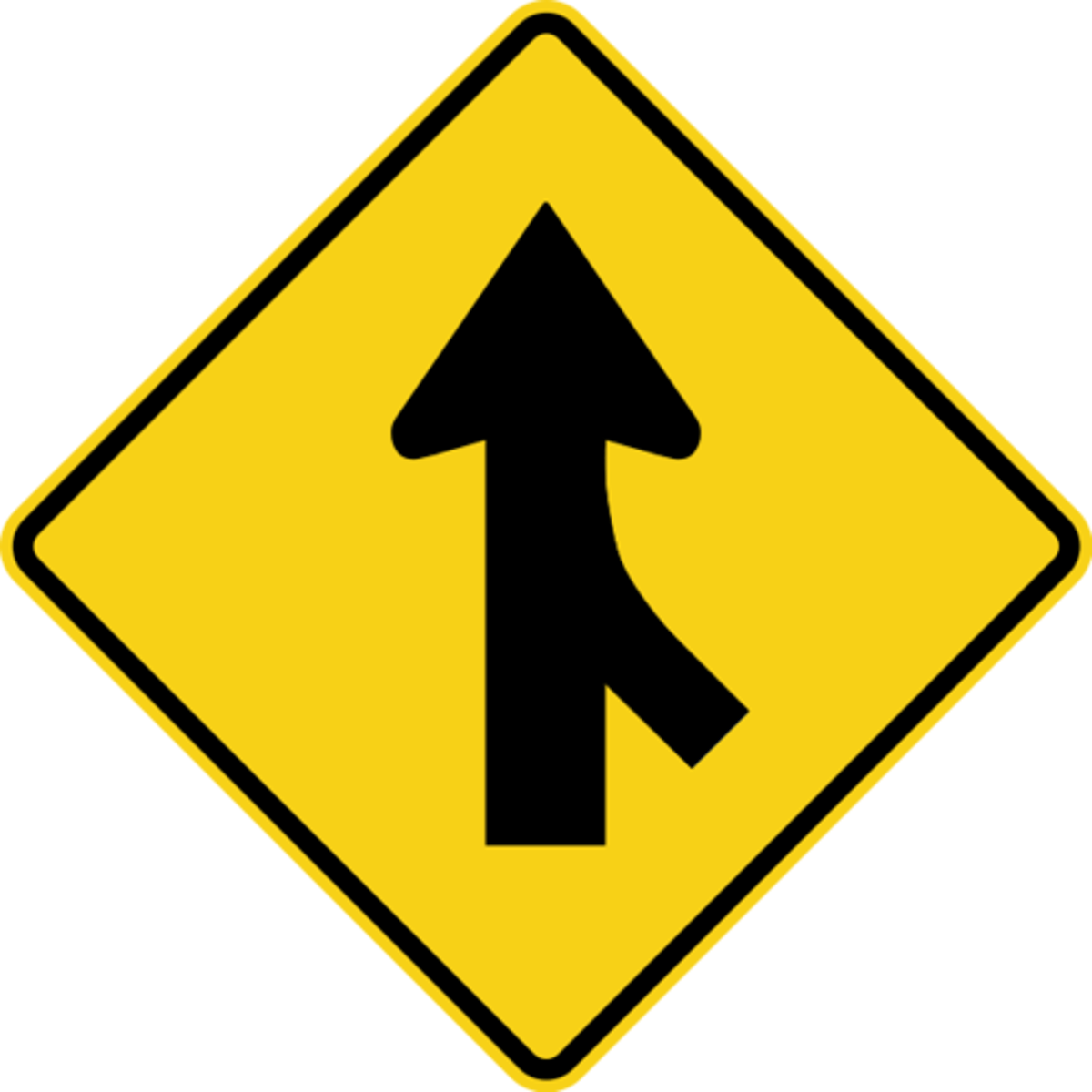
Lane Drop
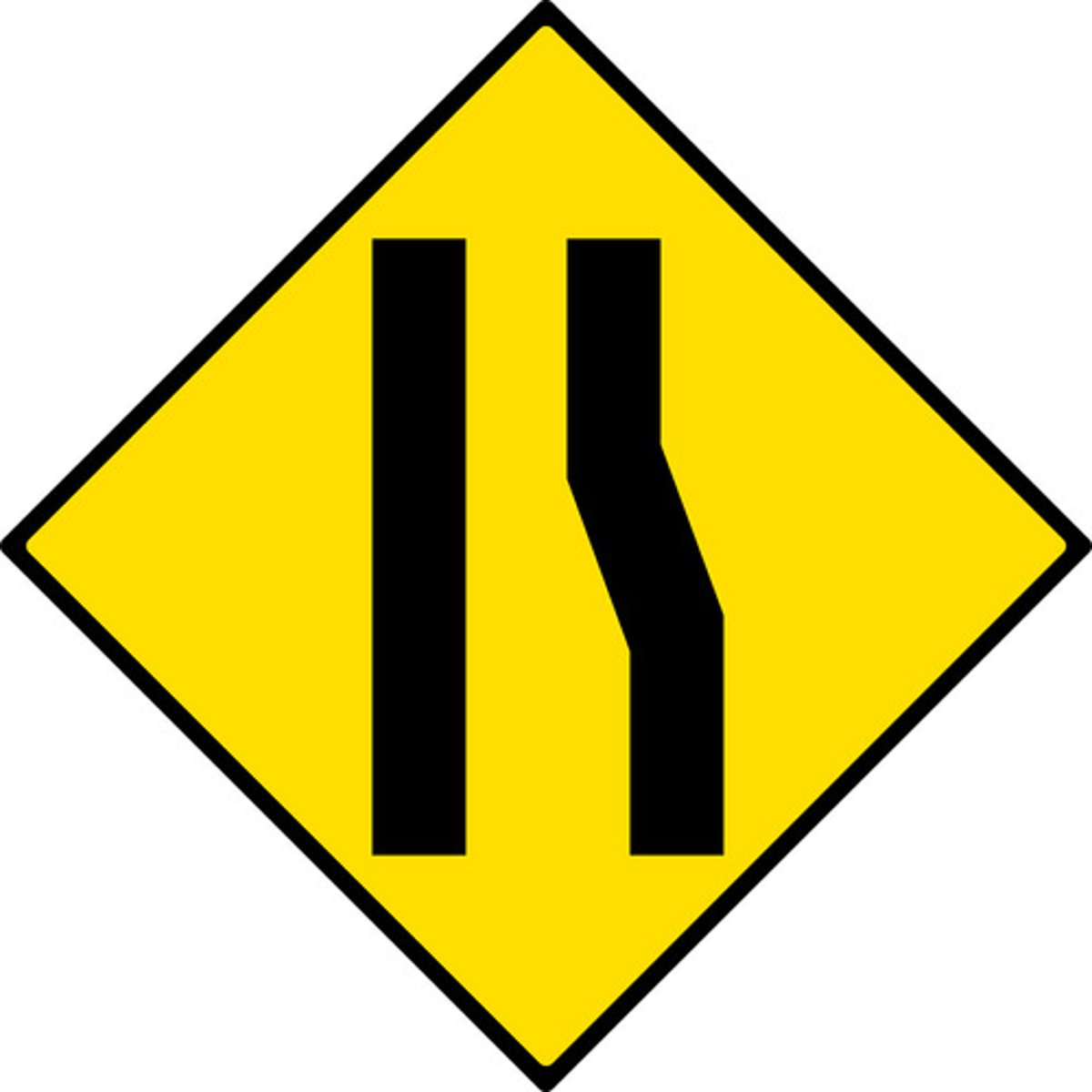
Divided Highway
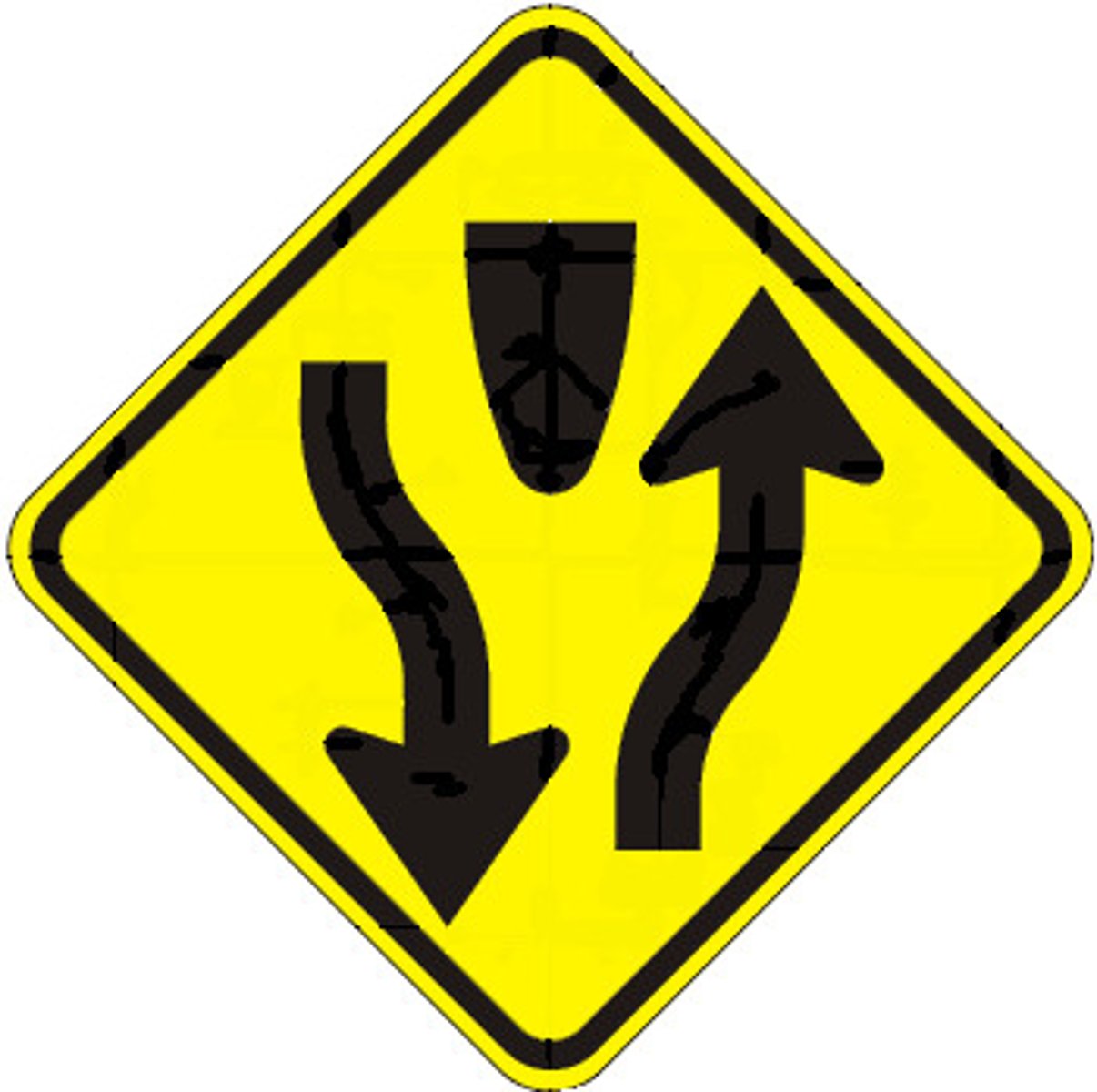
Cattle Crossing
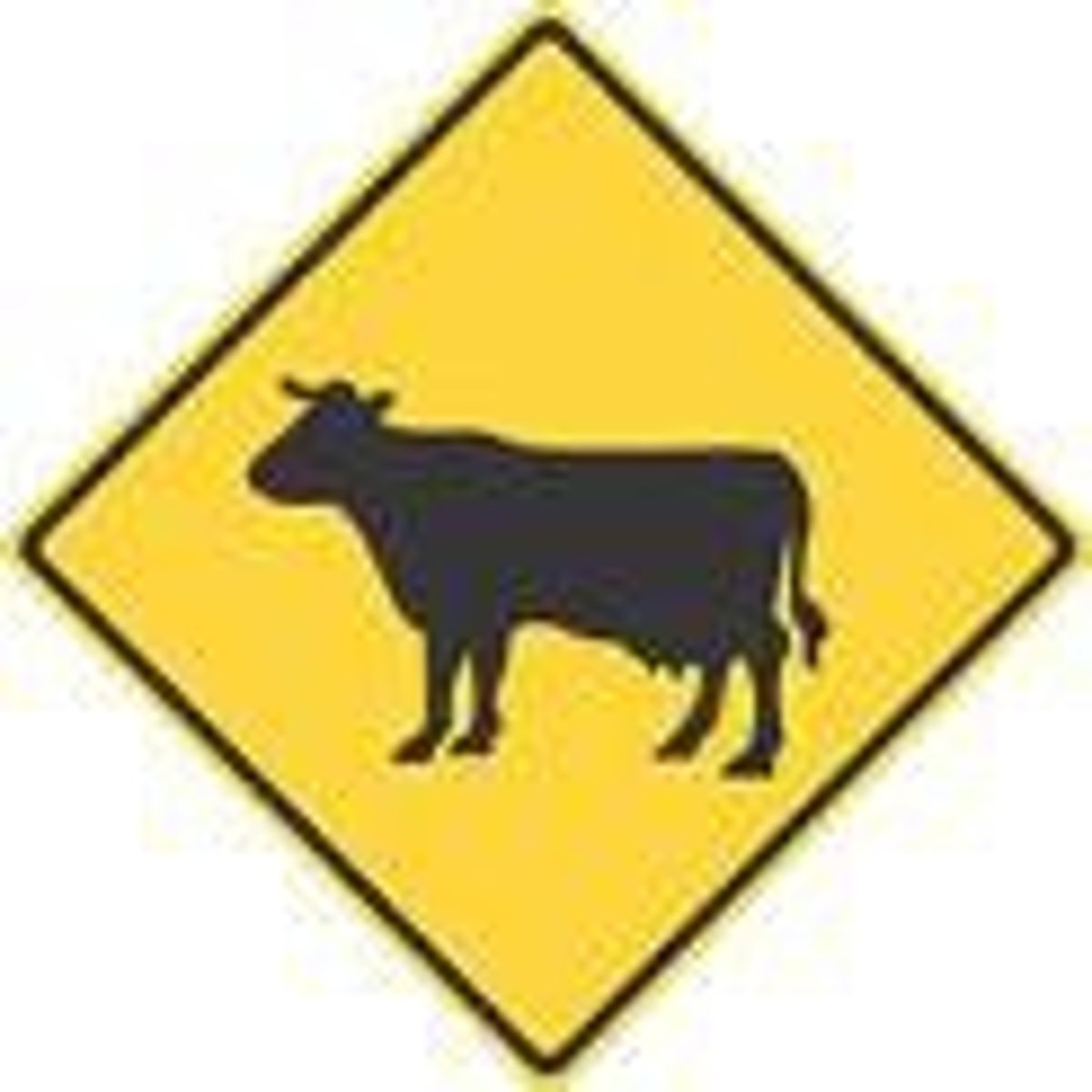
Deer Crossing
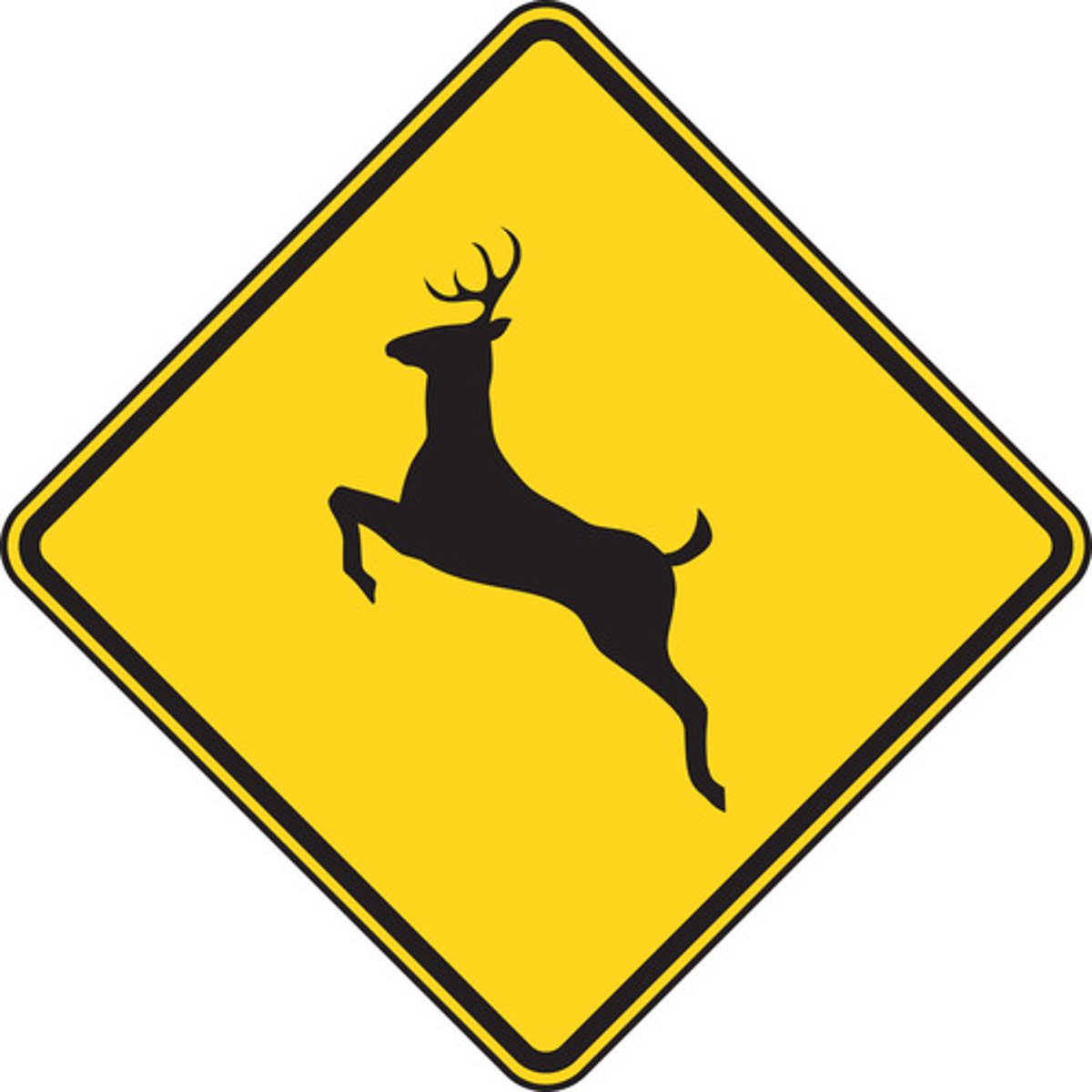
Low Clearance
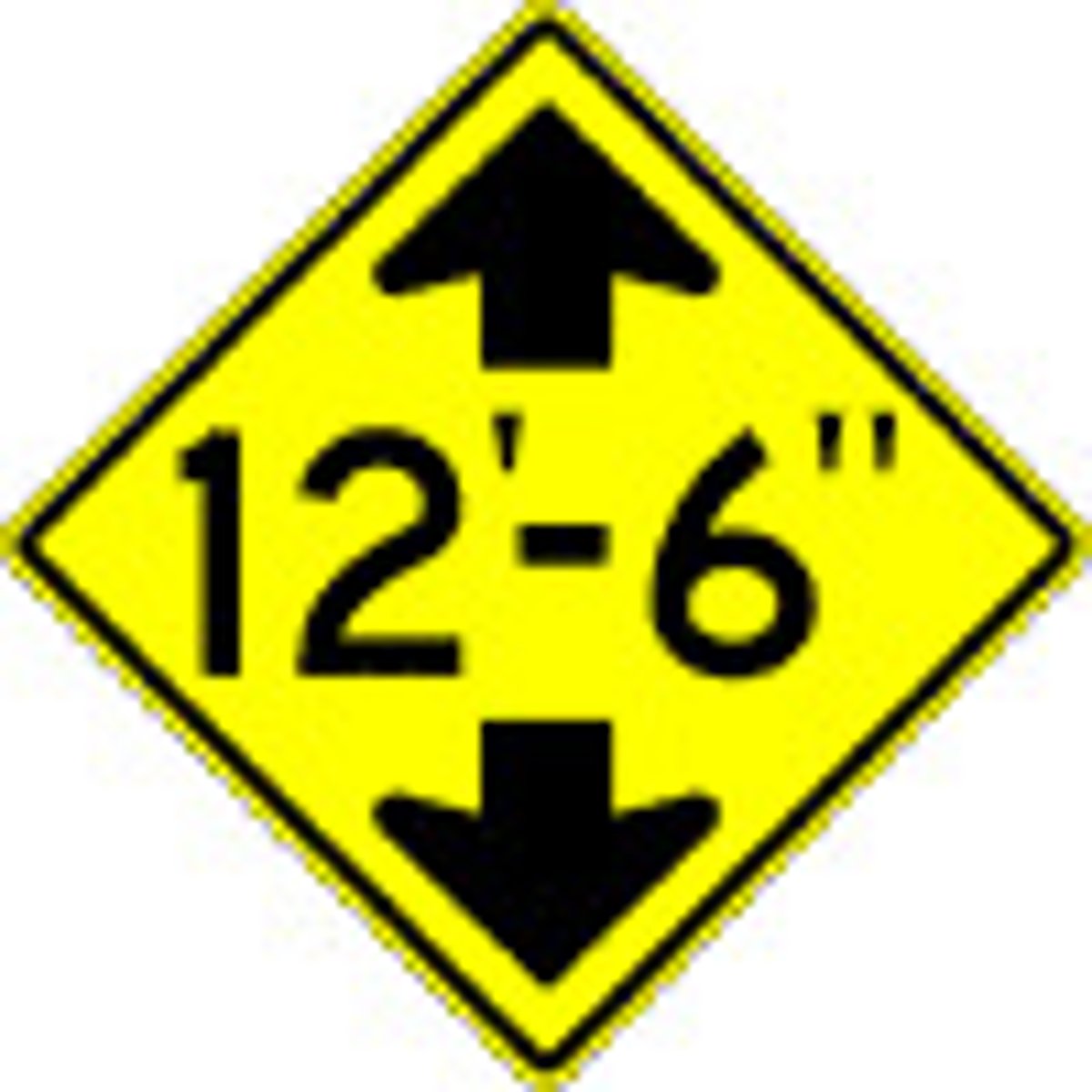
No Passing Zone
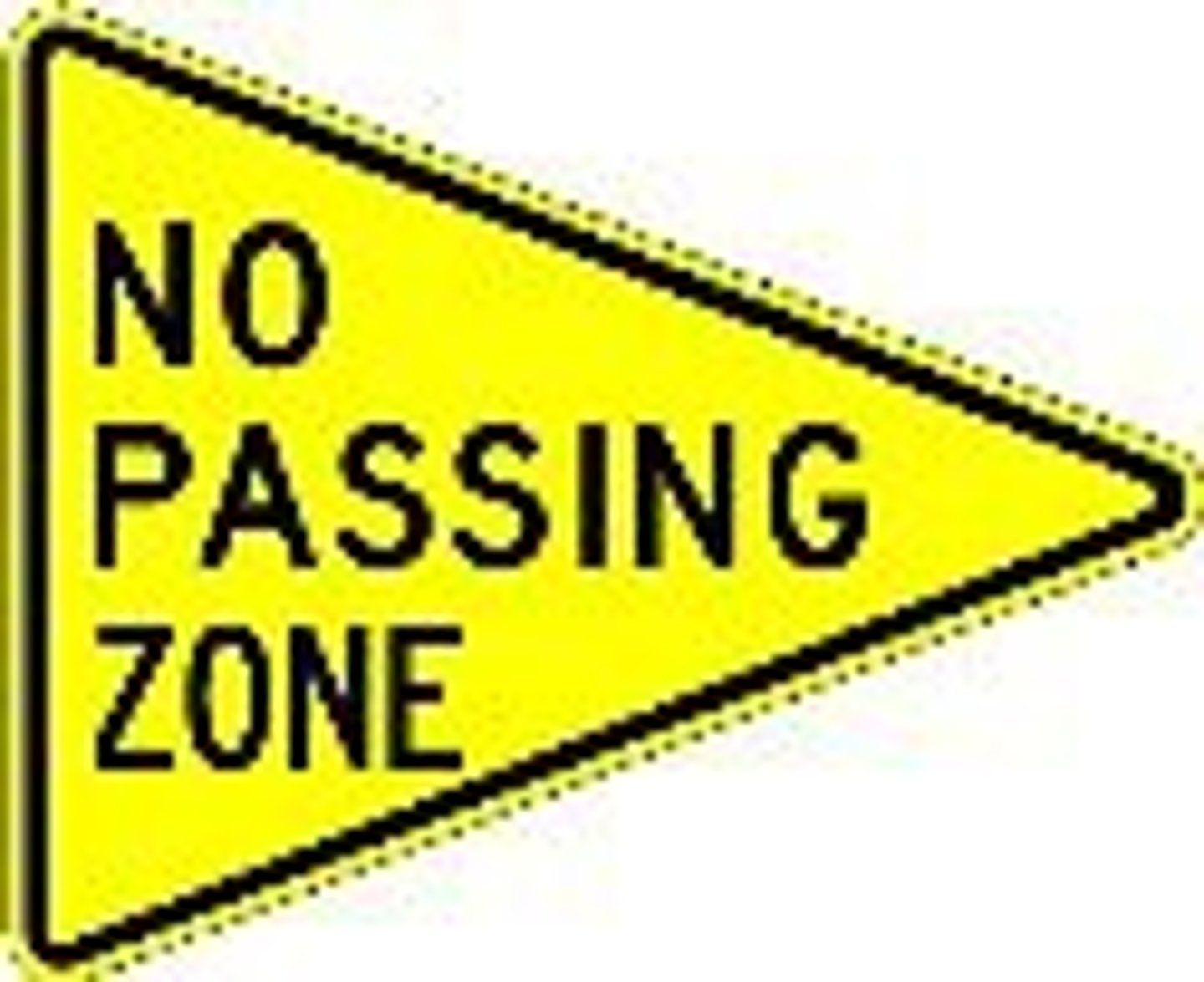
Right Turn
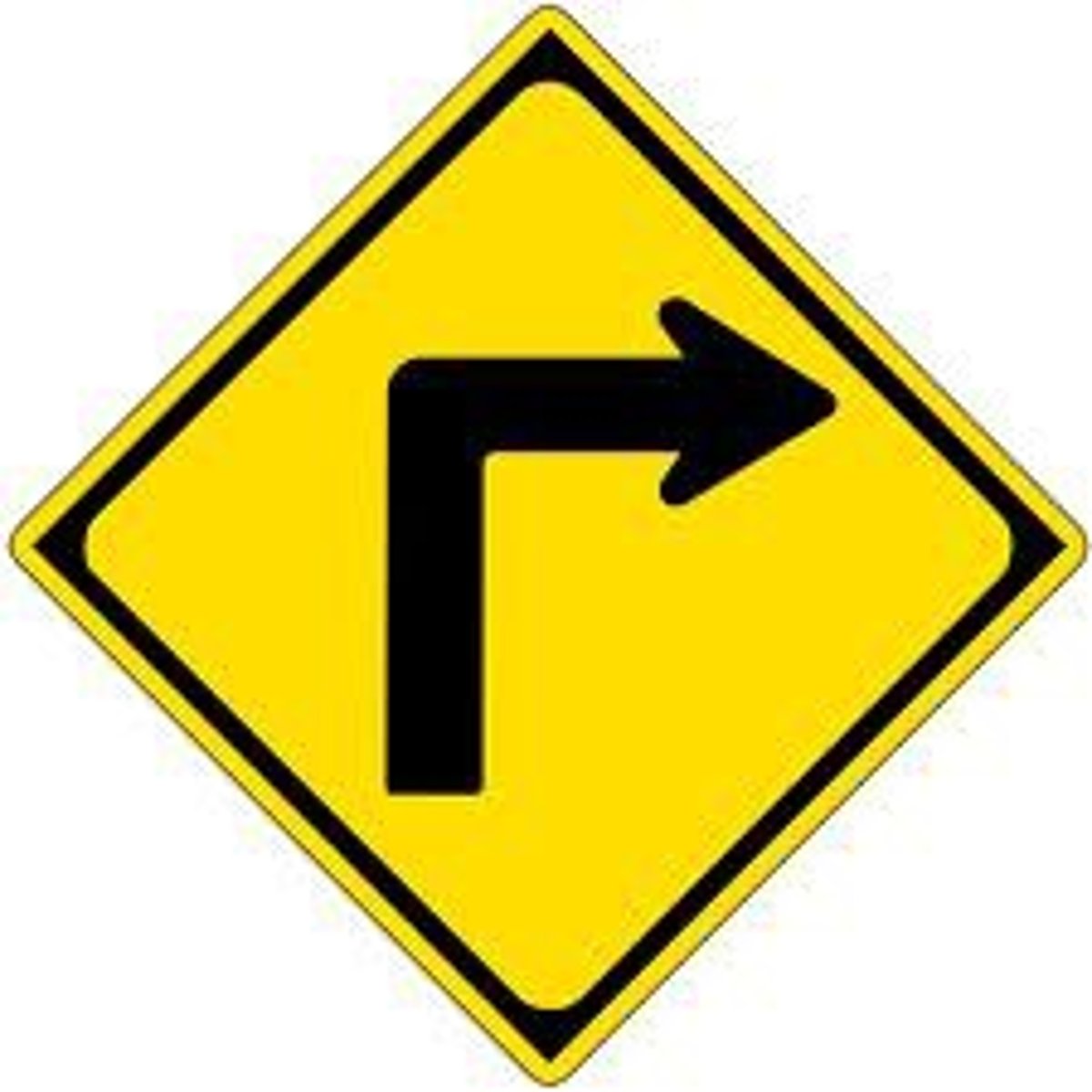
Curve Right
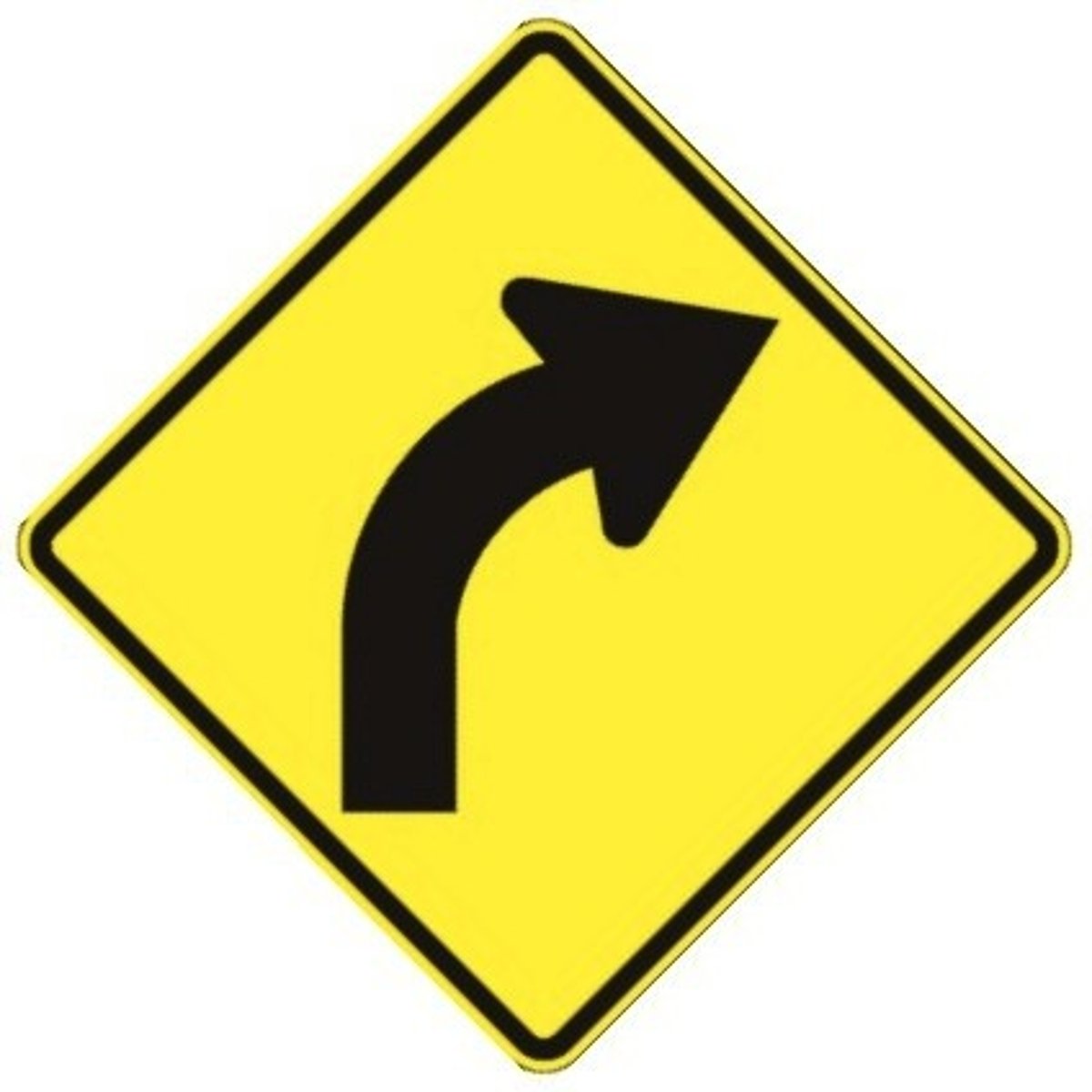
Farm Machinery
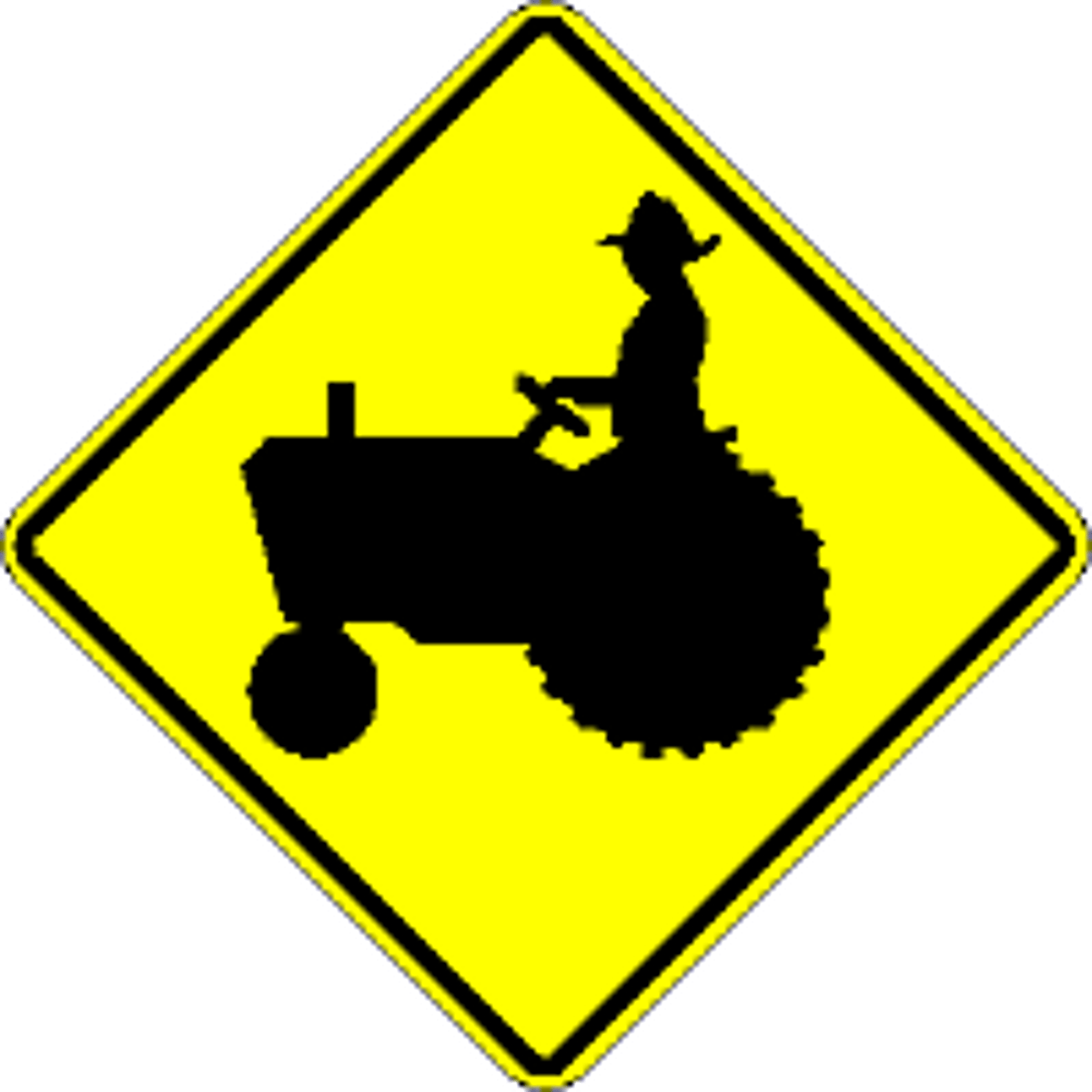
Side Road
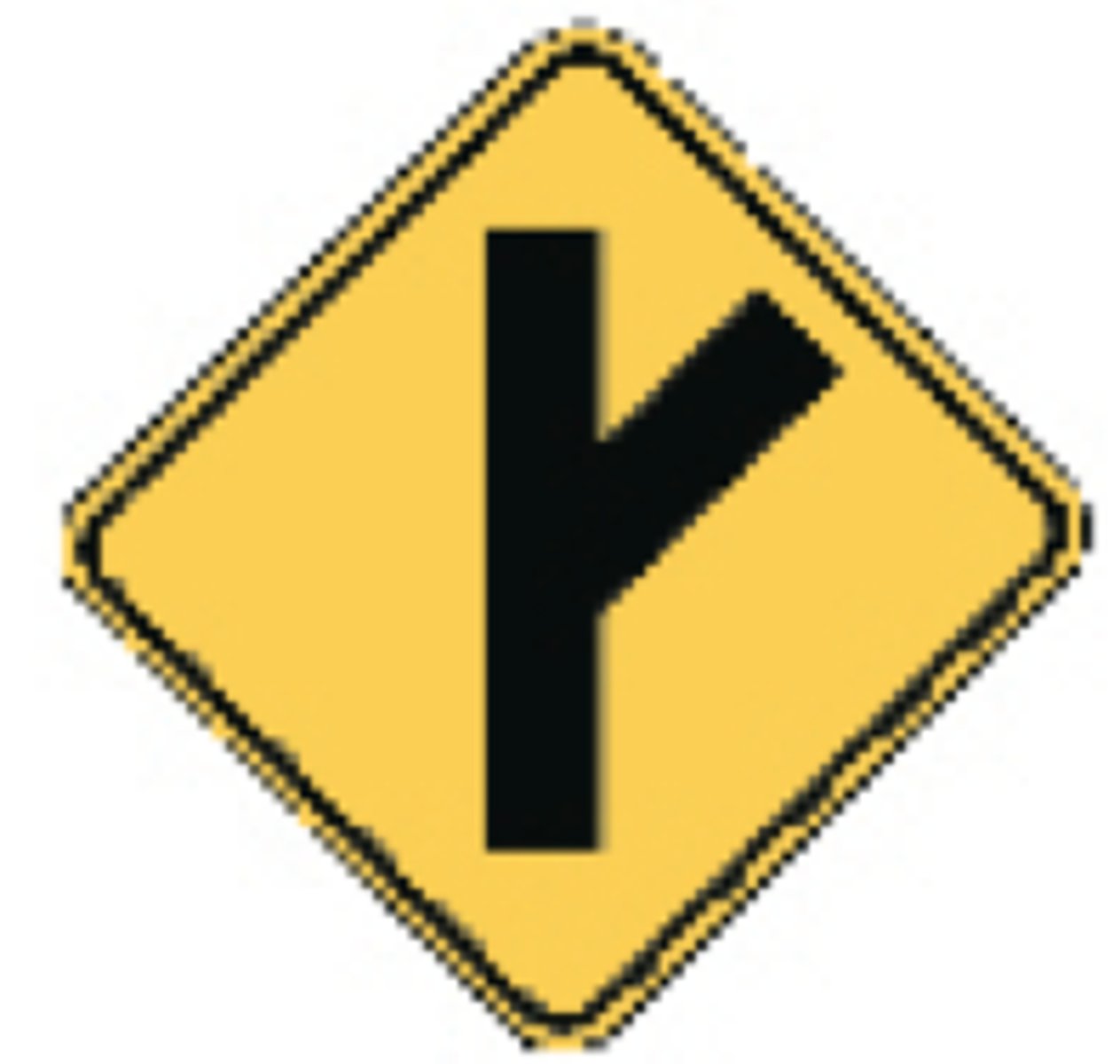
Divided Highway Ends
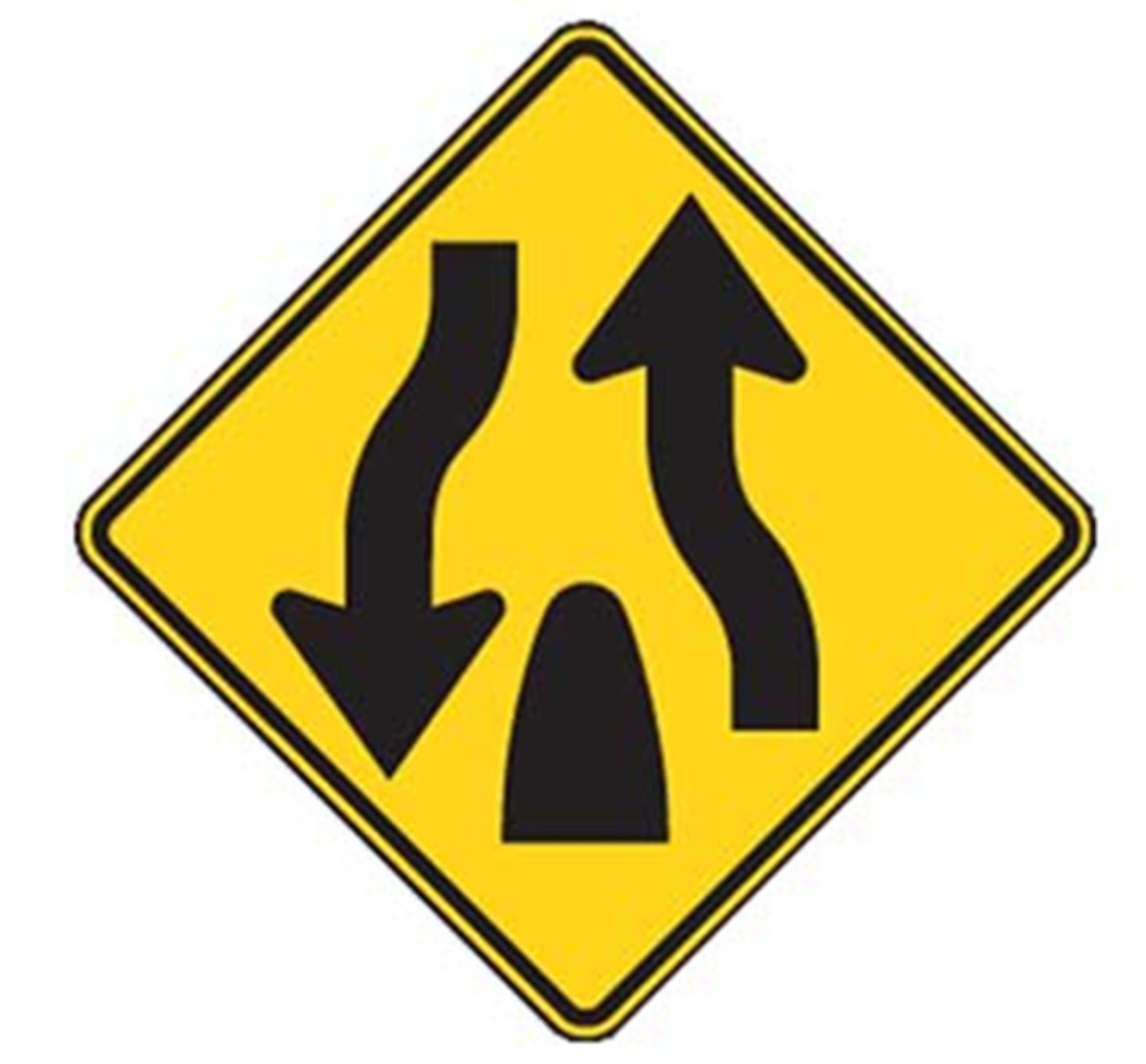
Two Way Traffic
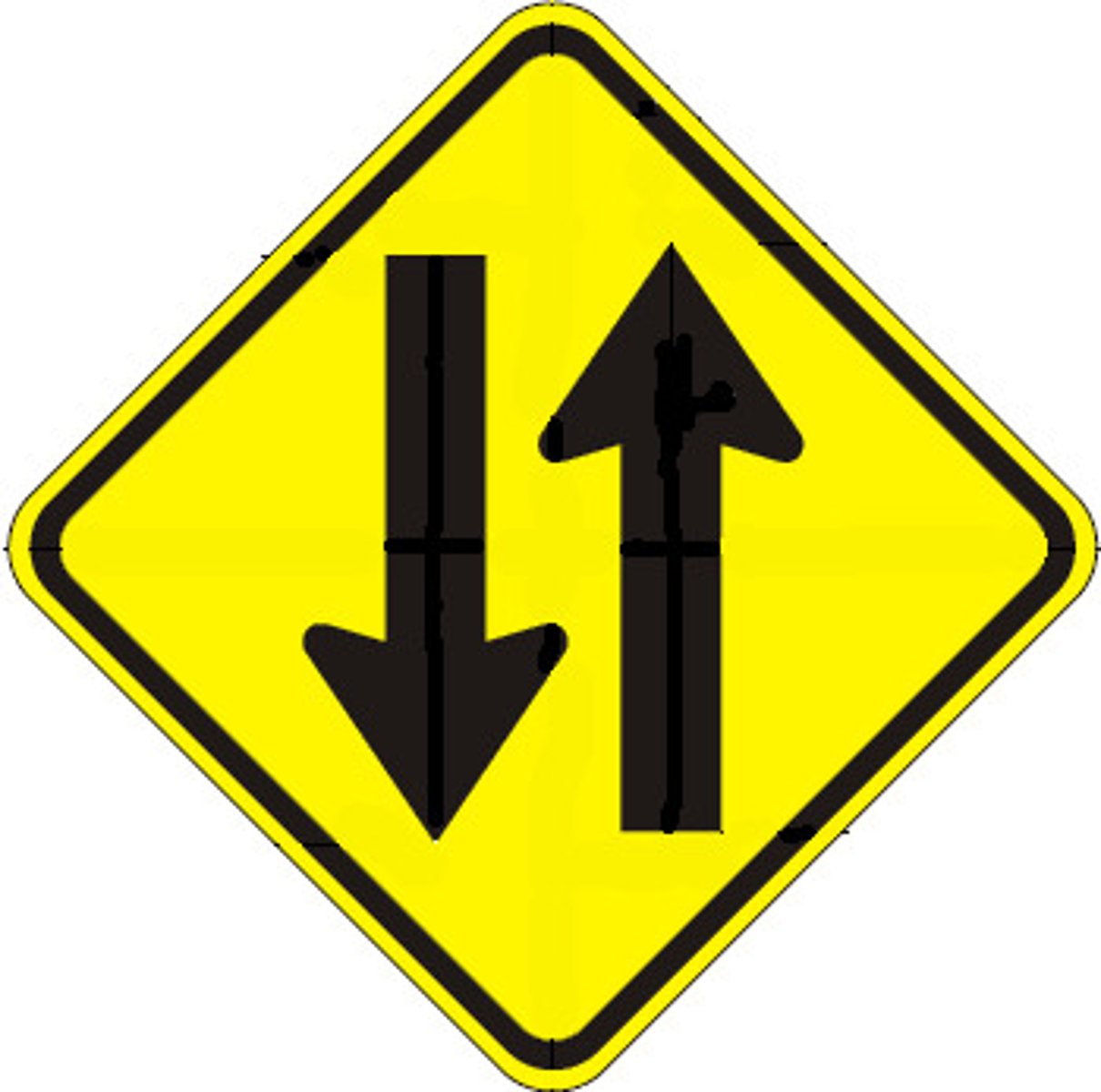
Hill
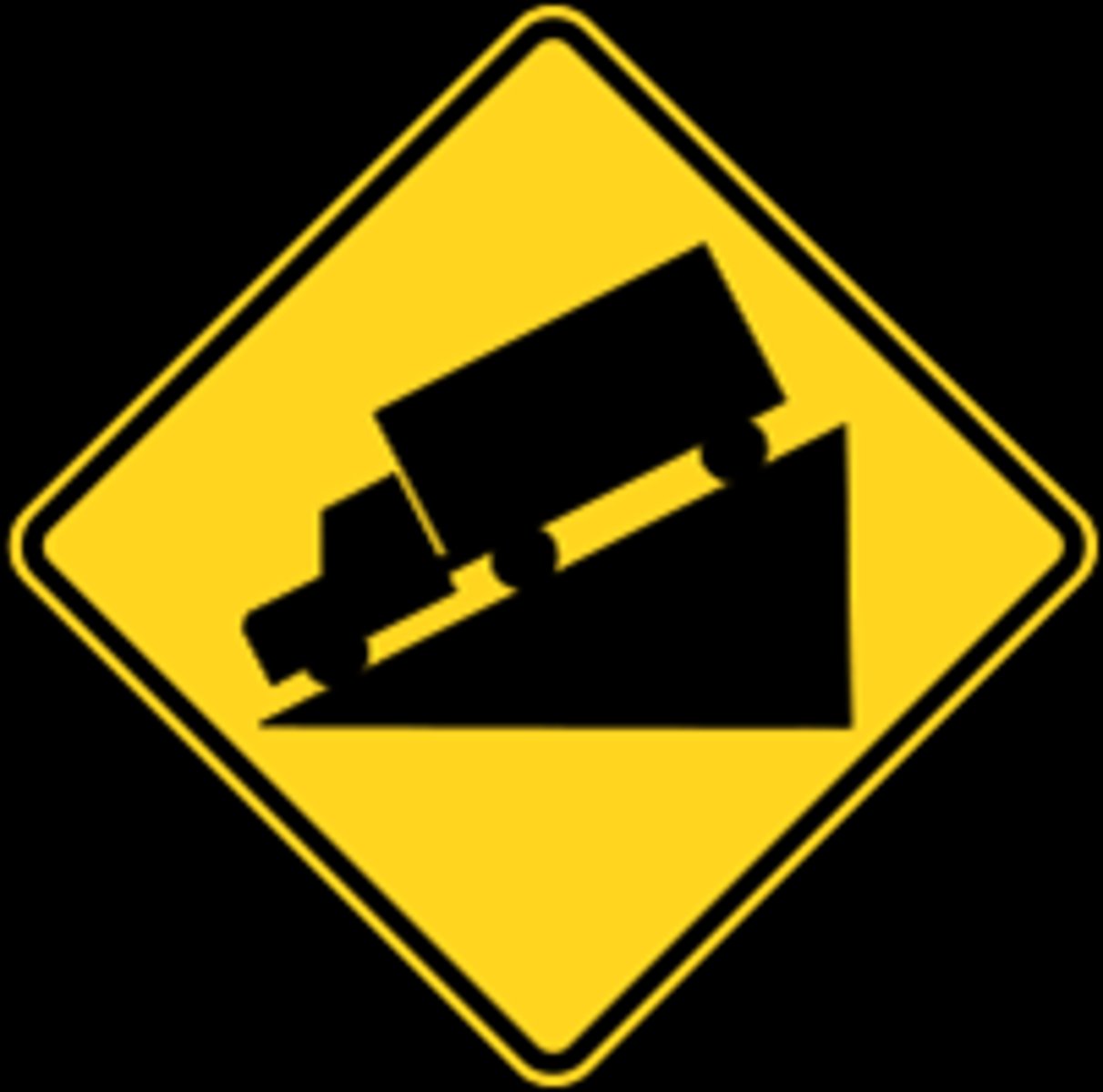
Slippery When Wet
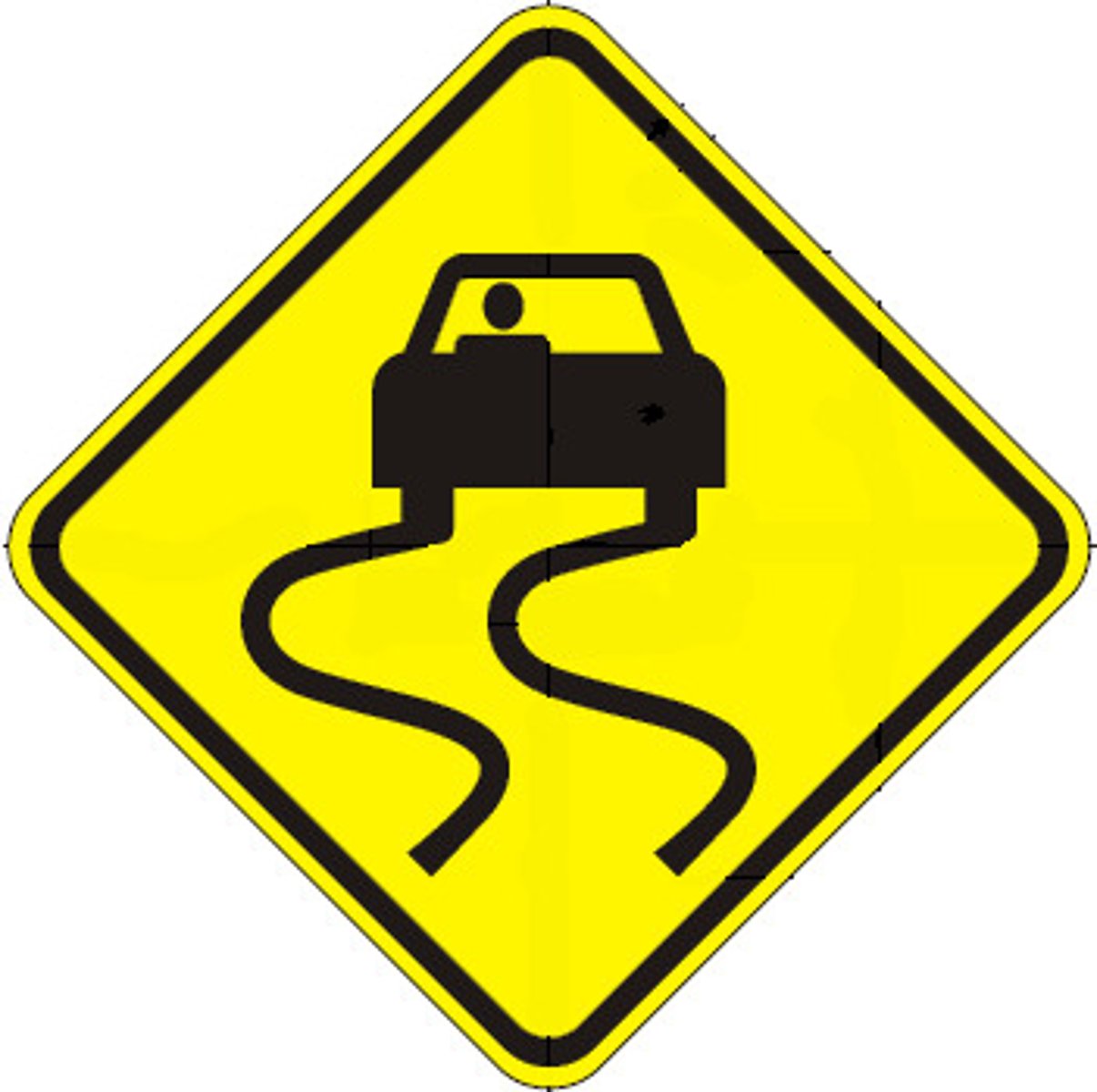
Bike Crossing
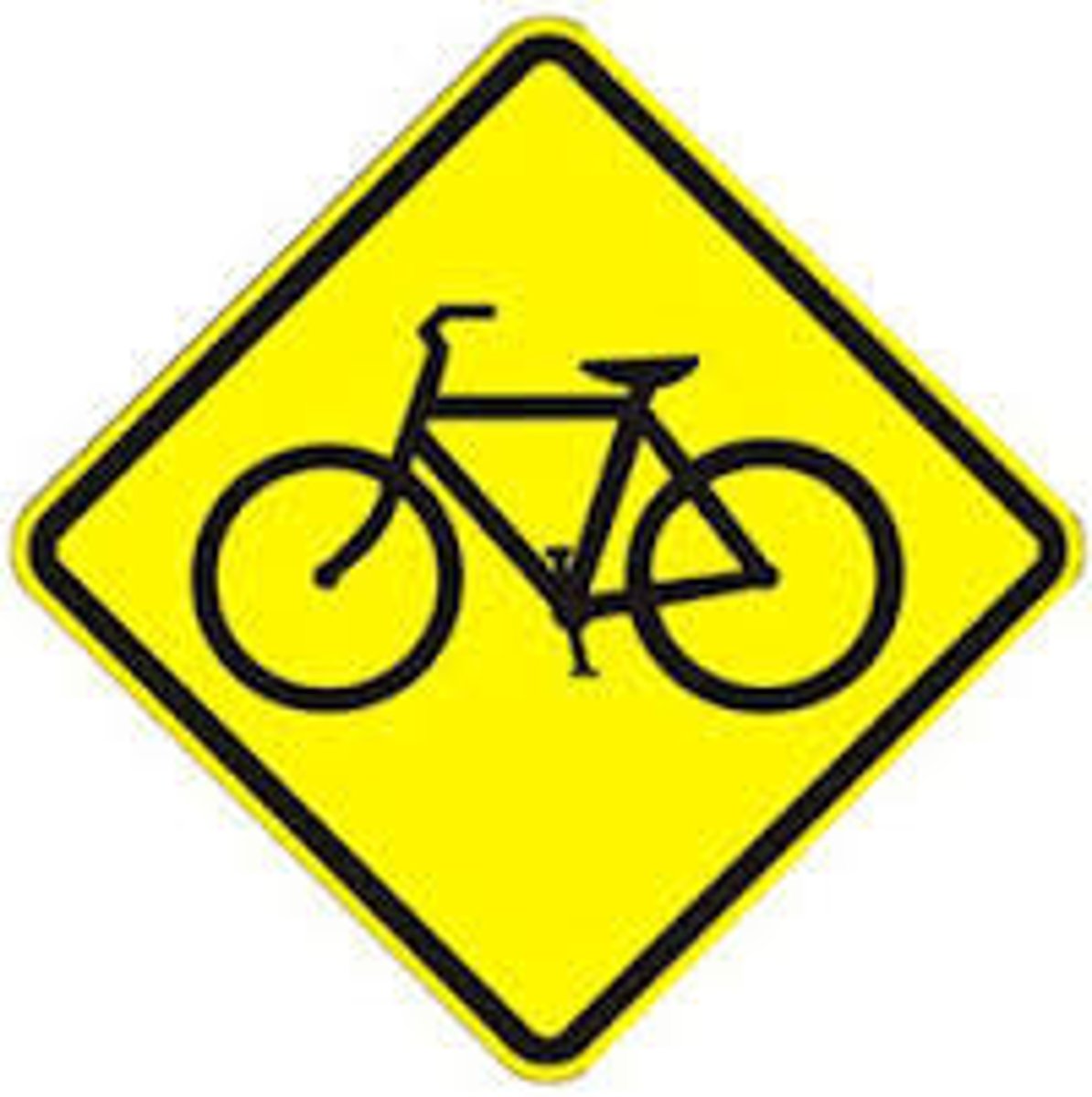
Soft Shoulder
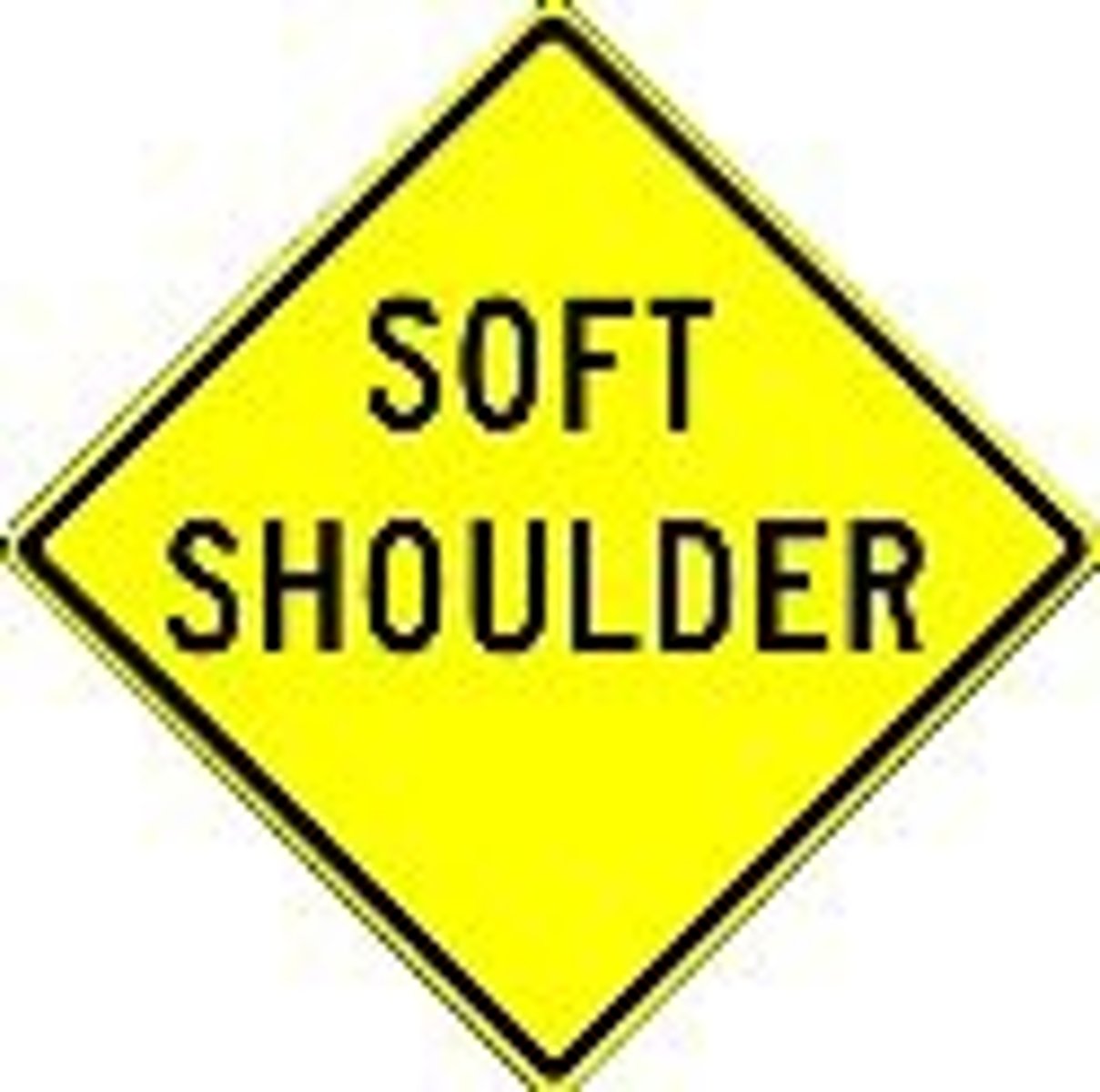
Side Road
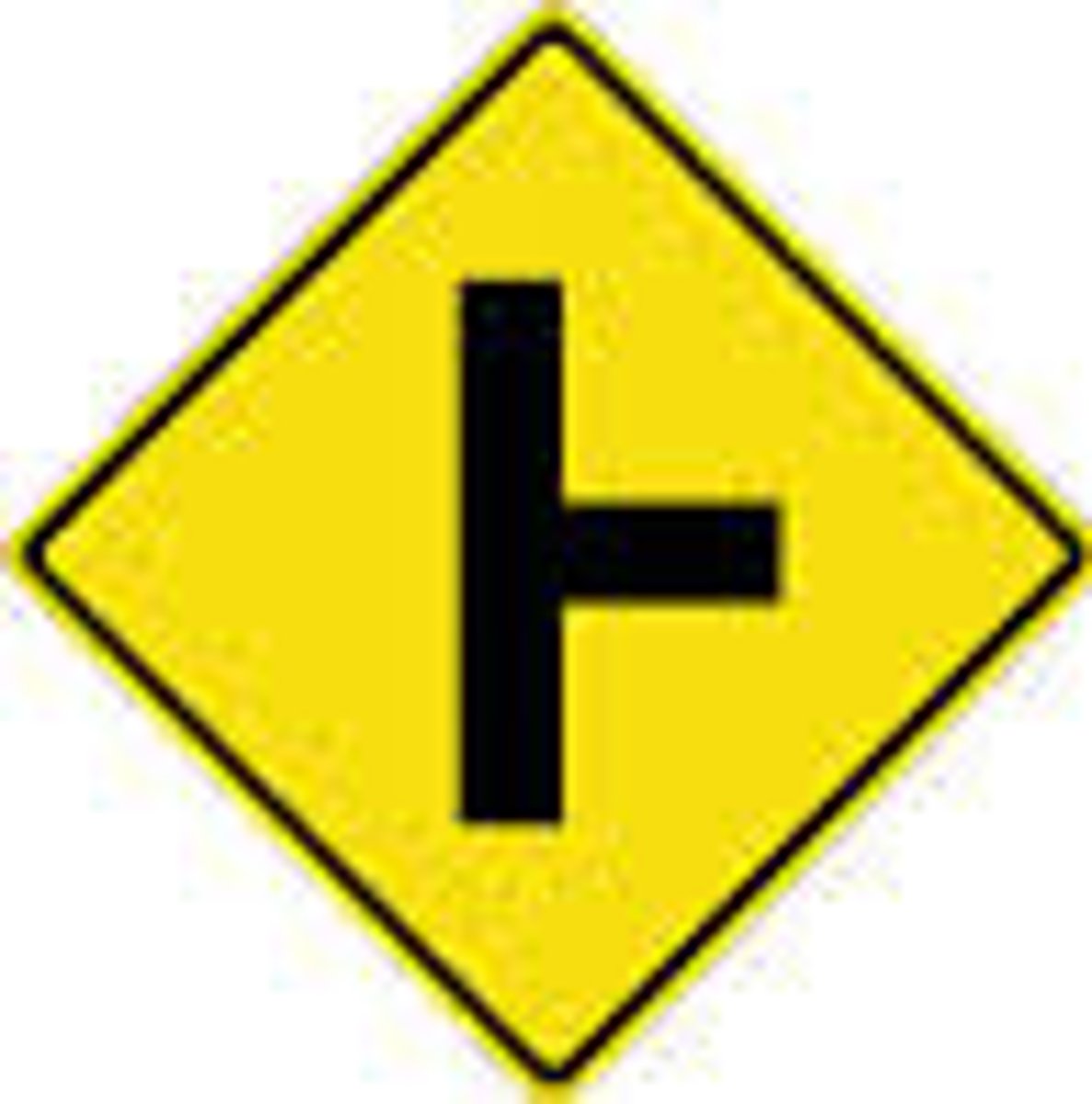
Cross Road
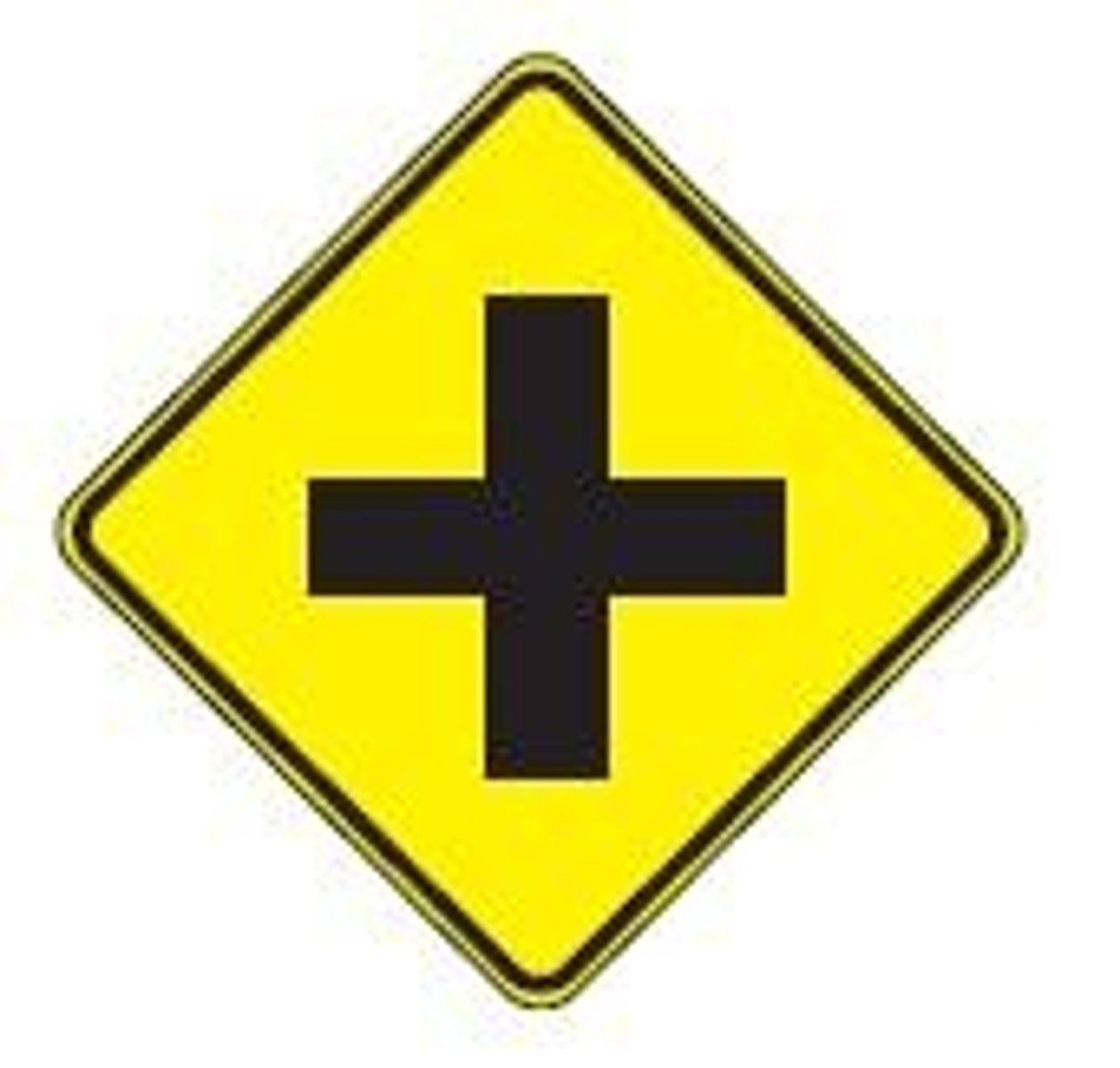
Winding Road
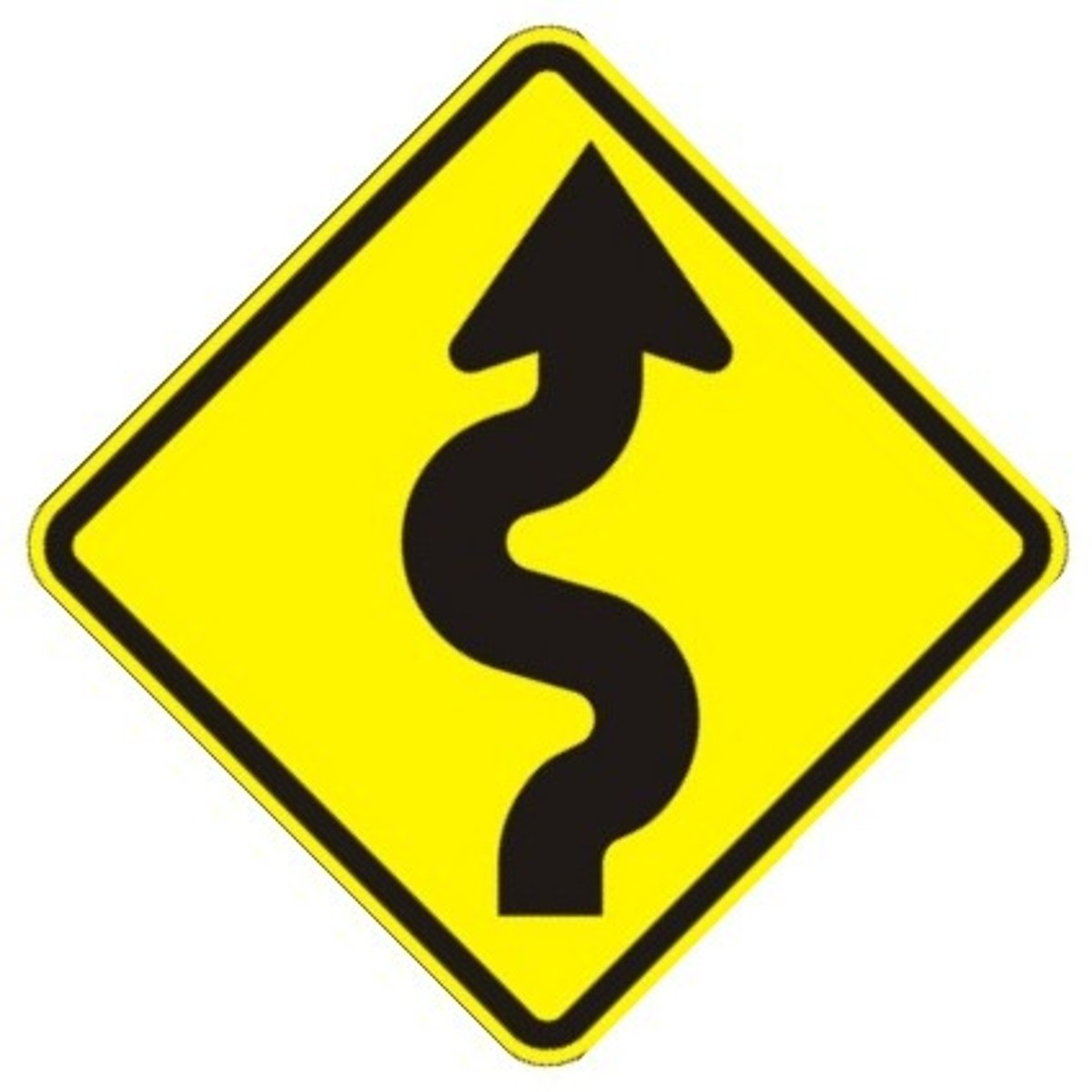
Stop Ahead
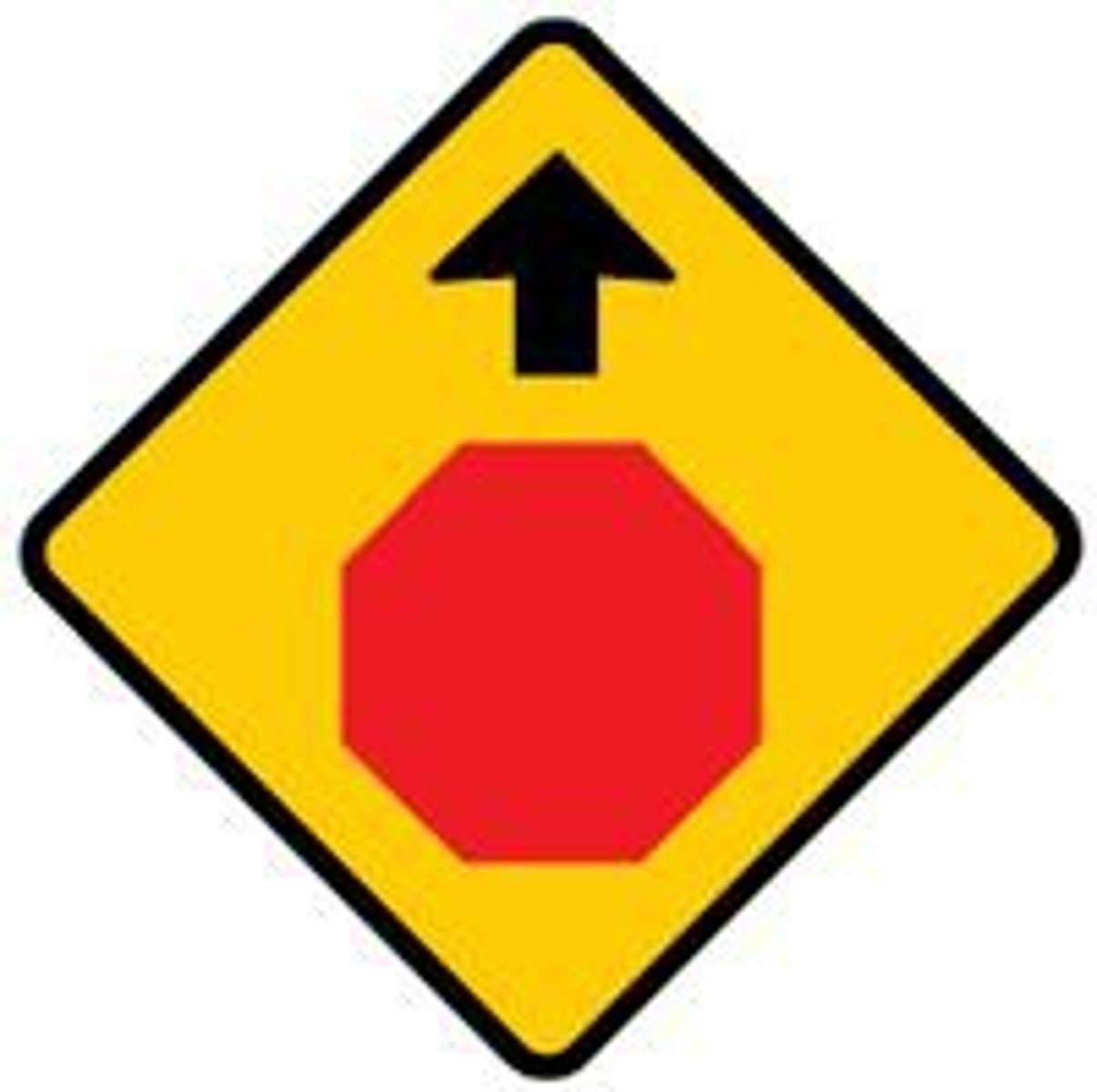
Yield Ahead
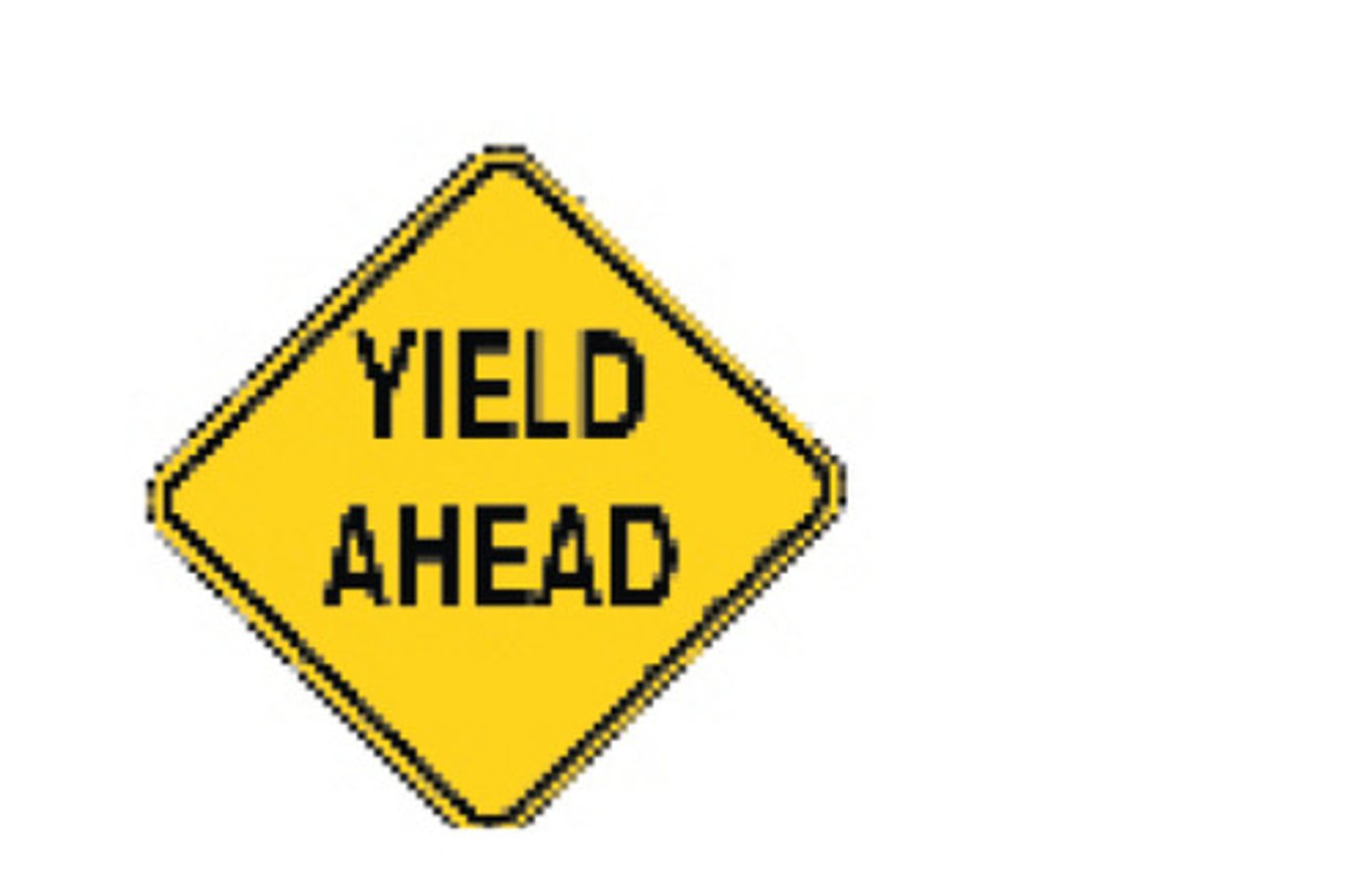
Road Closed (This Many Feet)
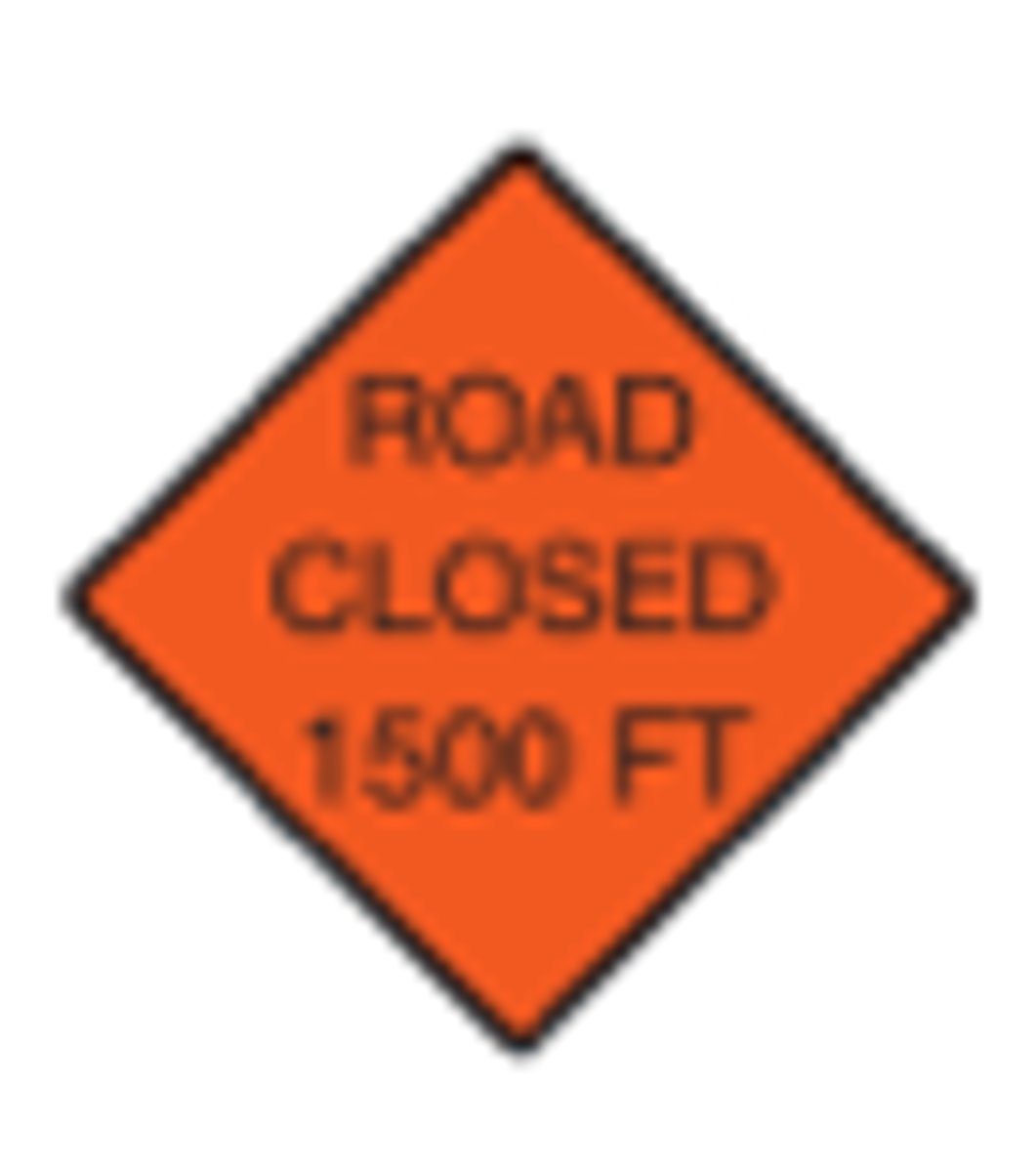
School

School Crossing
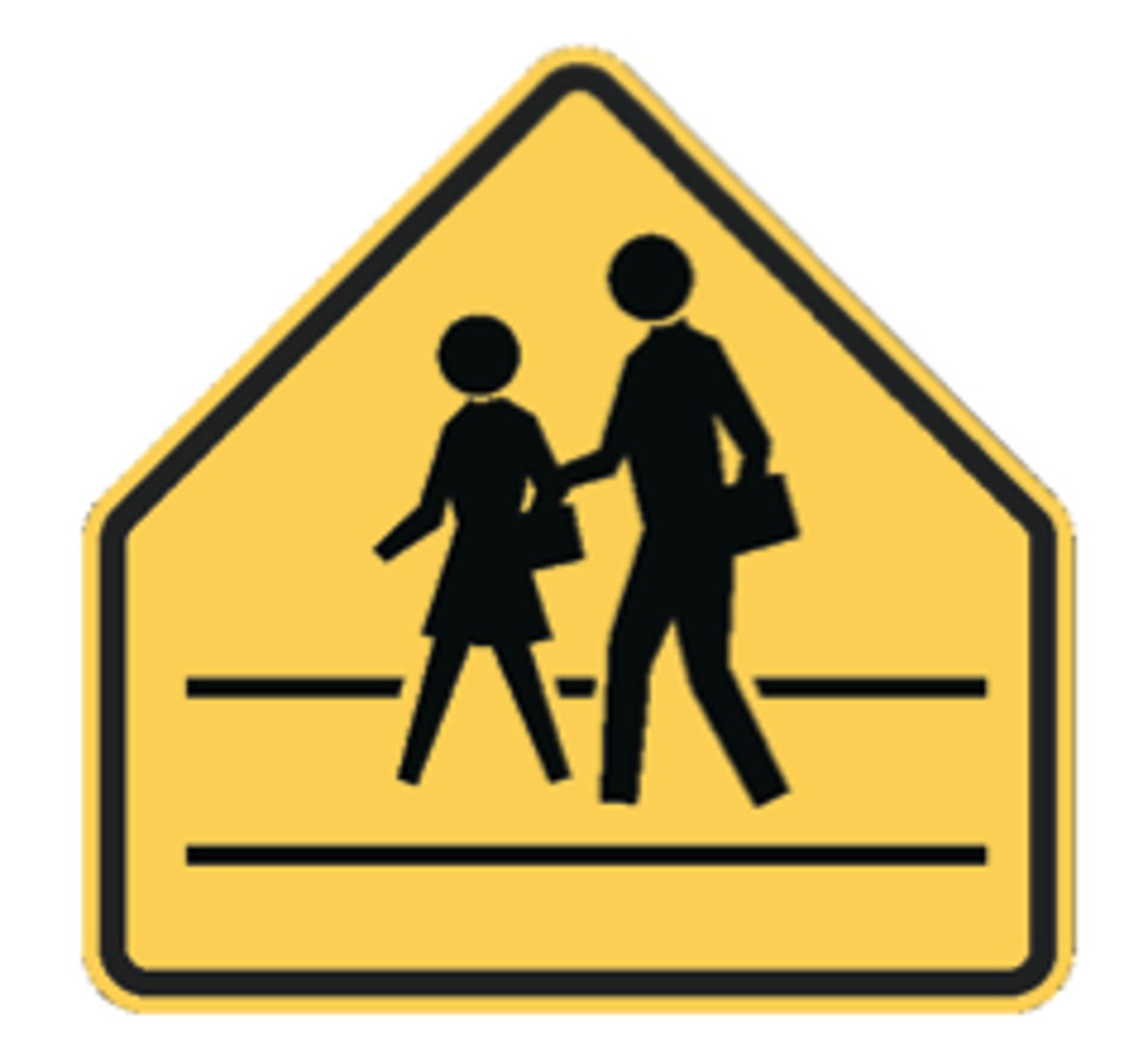
Railroad Crossing
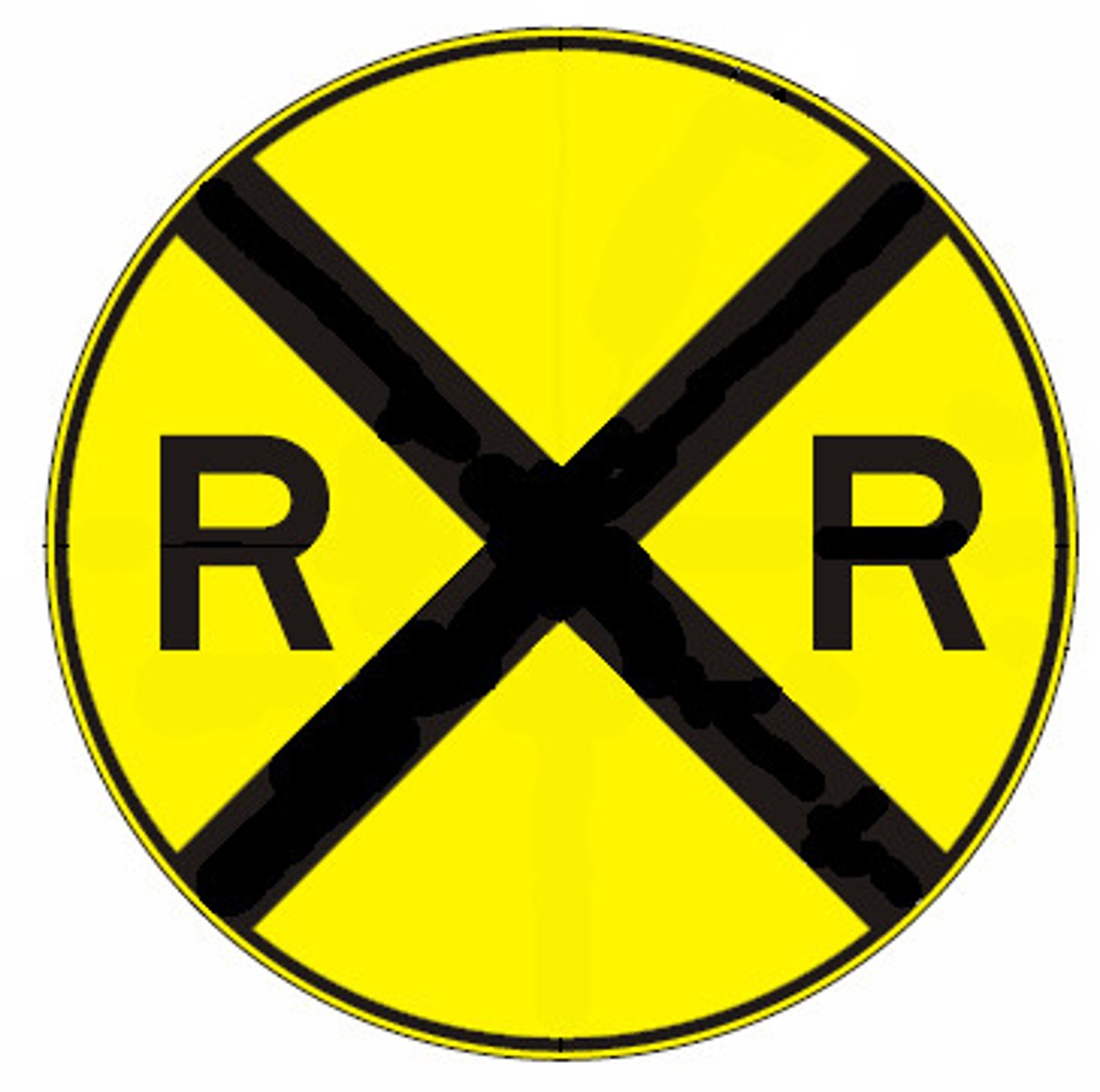
4-6 Second Range
The searching range you need to get the final update of how you are controlling your intended path of travel.
12-5 Second Range
The recommended searching area for identifying changes in your line of sight and path of travel.
Central Vision
The part of the field vision that you can see clearly and sharply.
Closed Zone
A space not open because of your restrictions in your line of sight or the path of travel.
Compromise Space
Give as much space as possible to the greater hazard.
Escape Path
Place to go in case of a possible conflict.
Field of Vision
All the area that is visible to the driver when looking straight ahead.
Line of Sight
The distance you can see ahead in the direction you are looking.
Minimize Hazard
Reducing the risk by putting a greater distance between you and the hazard.
Open Zone
A space where you can drive free of restrictions to your line of sight and path of travel.
Orderly Visual Search Pattern
Process of searching critical areas in a regular sequence
Path of Travel
The space your vehicle will apply.
Peripheral Vision
The part of field vision surrounding the central vision.
Scanning
When the driver follows the process of an orderly visual search pattern.
Selective Seeing
Selecting and identifying the clues only for restrictions , hazards, or conflicts that are important to your driving task.
Separate Hazards
Adjusting your speed in order to handle one hazard at a time.
Space Cushion
Area of space that is free of restrictions, hazards, and conflicts when you see it.
Target Area
Area far ahead in your path of travel and the area to the left and right.
Traction
The gripping power between the tires and the road surface.
Zones
The six areas of space around a vehicle.
IPDE
A seeing, thinking, and responding process.
Identify, Predict, Decide, Execute
Smith System
A visual system to stay safe on the road.
Aim high, get big picture, keep eyes moving, leave yourself an out, make sure others see you
Chains, Snow Tires
What should you use to increase traction in densely packed snow?
Low beam
Which headlights should be turned on in heavy snow or fog?
38%
What percent of traffic fatalities are alcohol related highway deaths?
7, 3
How many points can you have on your record before you must go to a driver improvement clinic? How many points will then be deducted
5
Passing a stopped school bus that is unloading children will put how many points against your record?
Secondary
Roads where hills are steeper and curves are sharper
35 mph
What is the speed limit in cities?
Visit office, pay restoration fee, reapply for license
What are the three steps to have a revoked license restored?
Right
At an intersection, the car on the ___________ always has the right of way.
Suspension
There may be an issue in a vehicle's _________ system if it sways or leans to one side.
Pull over, raise hood
If your car breaks down, what should you do?
Two-Second Rule
States that you should be following two seconds behind the car in front of you
Side Effects
Before driving on a new medication, what should you check?
100
If you are on a long road trip, stop and rest every ____ miles.
Look ahead
Before passing, ______ ______ to make sure you have enough room to pass.
Lower
When going down a steep hill, shift into a ________ gear to control your speed.
Gas
If you run off the road, gradually take your foot off of the ___
15-20
On rural roads, farm equipment can travel at about __-__ mph.
Yield
When driving in a traffic circle, you must ______ to the cars already in the circle.
Off
If you're in a crash, move your car ____ the road.
Railroad Crossings
School buses must stop at all __________ __________.
Quick Stops
In the city, be aware of cars which make ______ _________
Blind Spots
Trucks have especially large ______ ________ to the side and rear, so don't linger where you can't see the driver. "Don't hang out in the No Zone"
Right
If you have stopped and made sure the turn is safe, you can turn _________ on red.